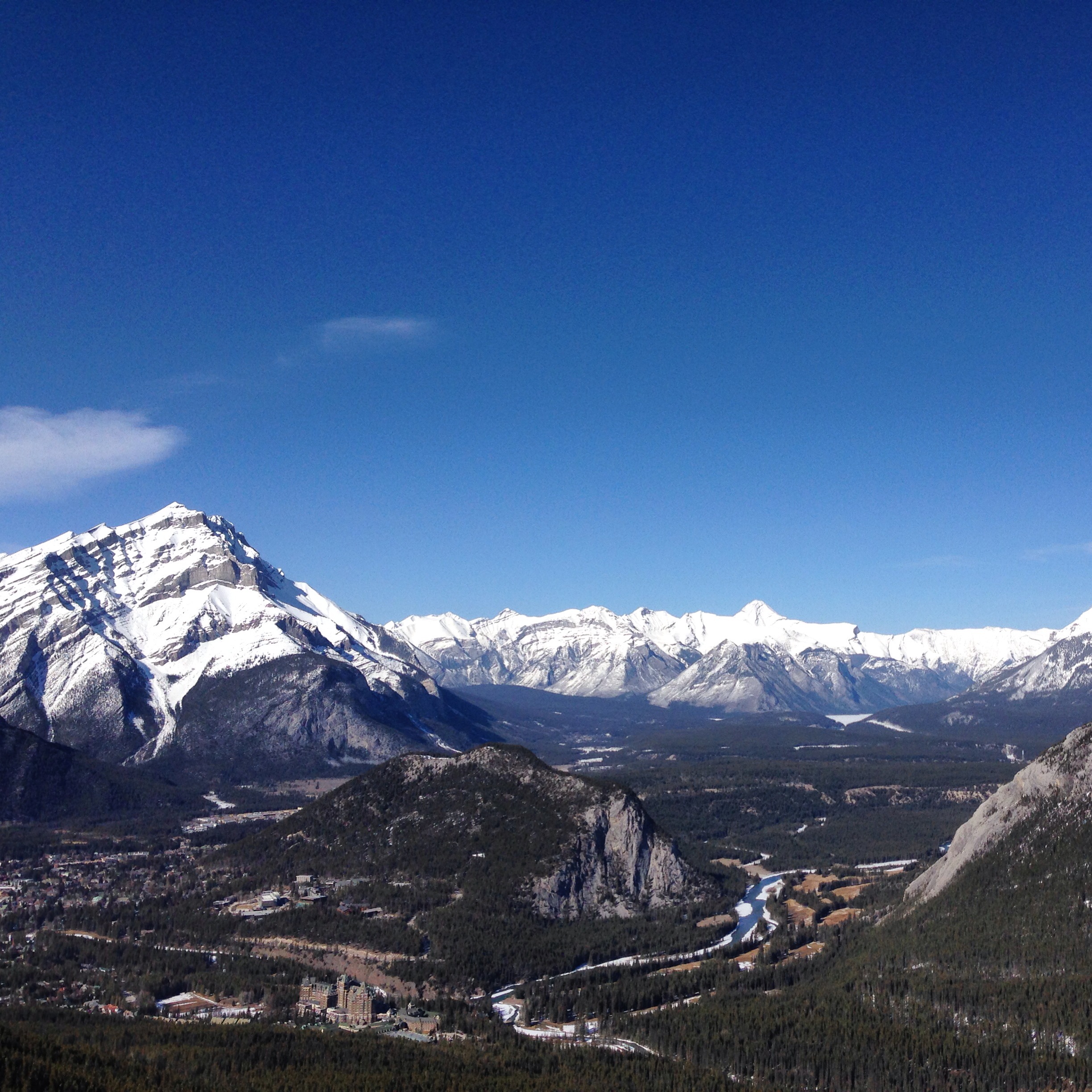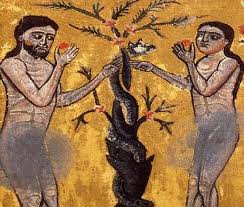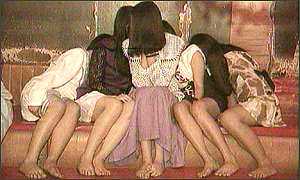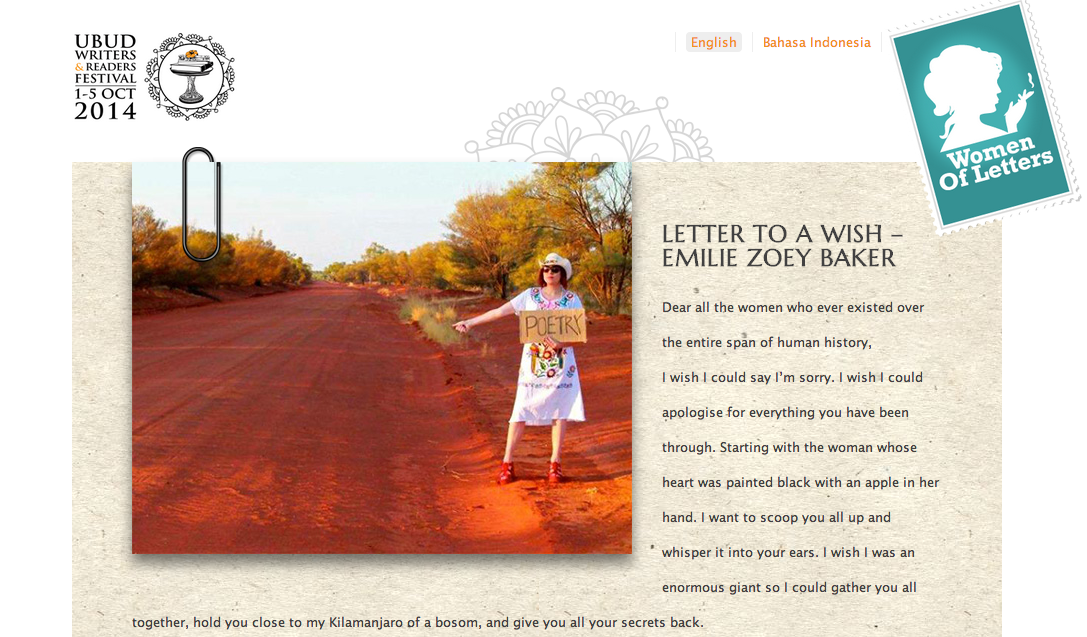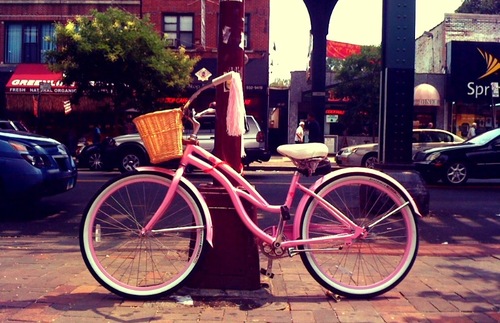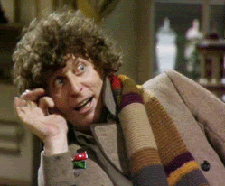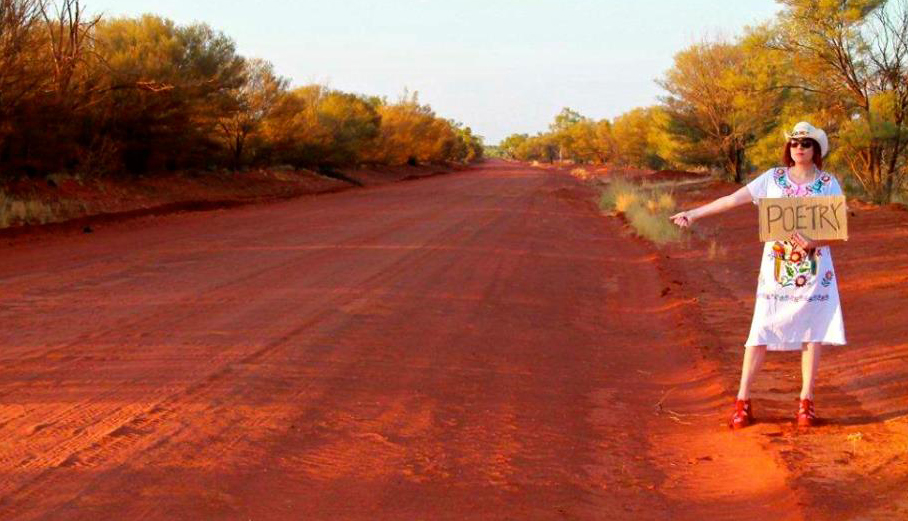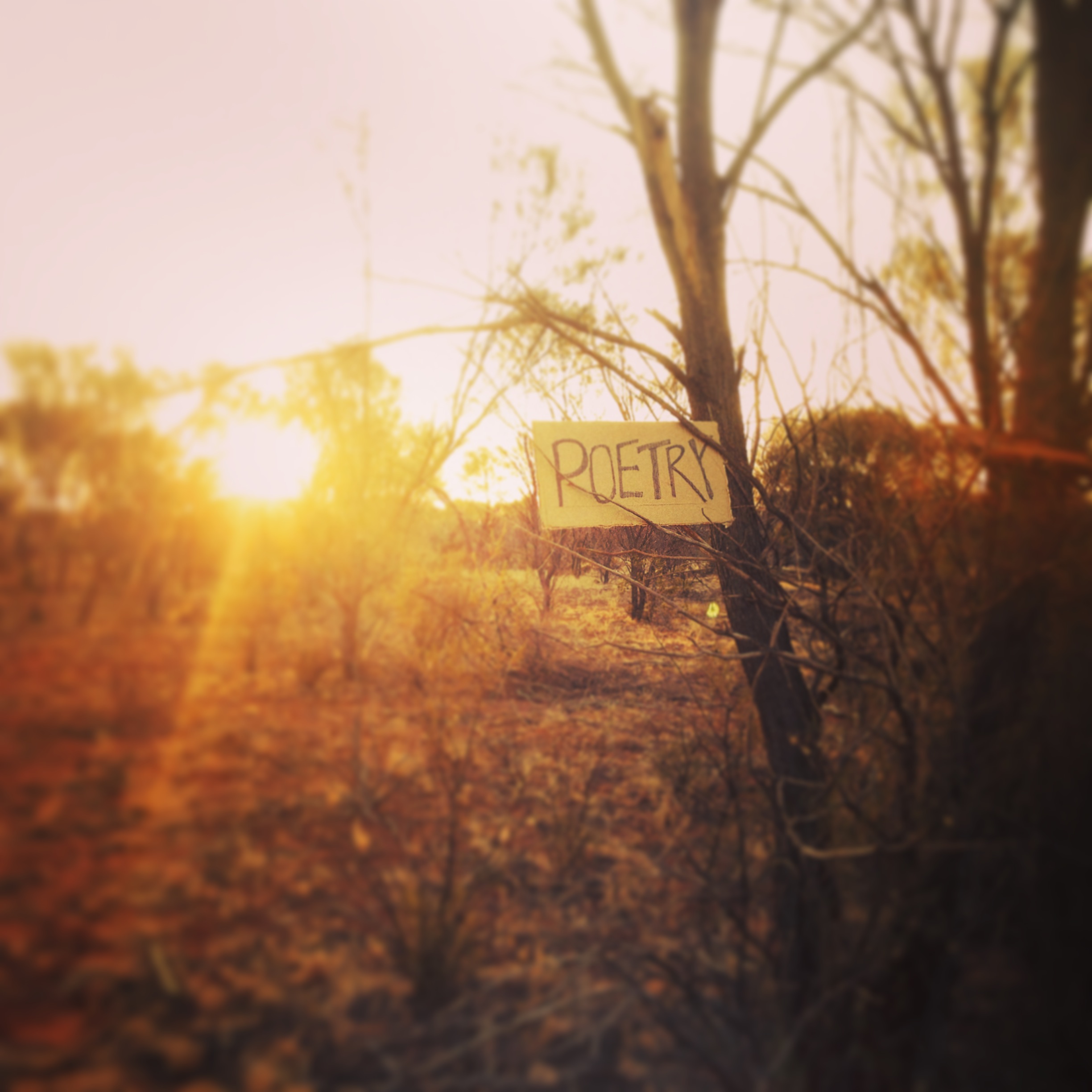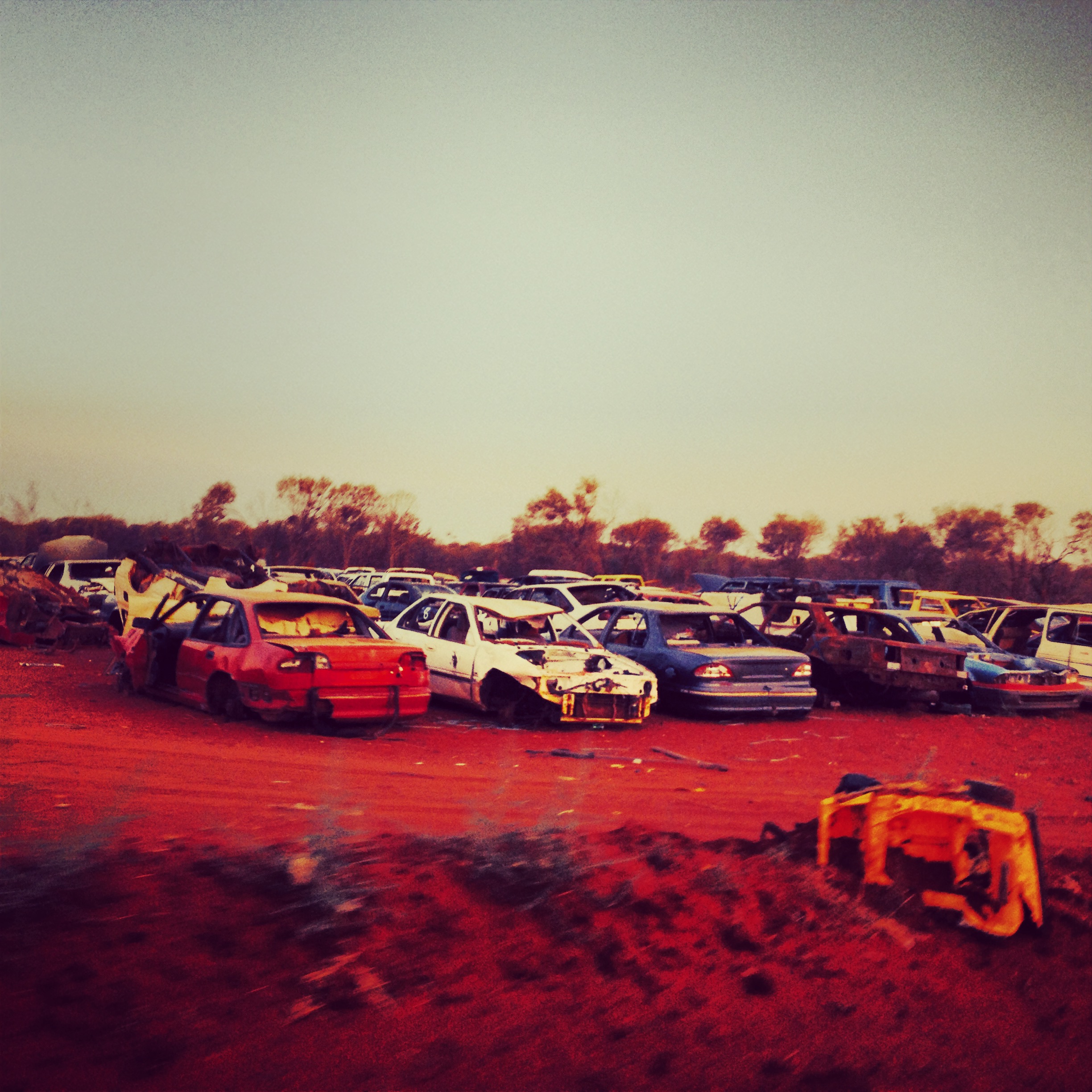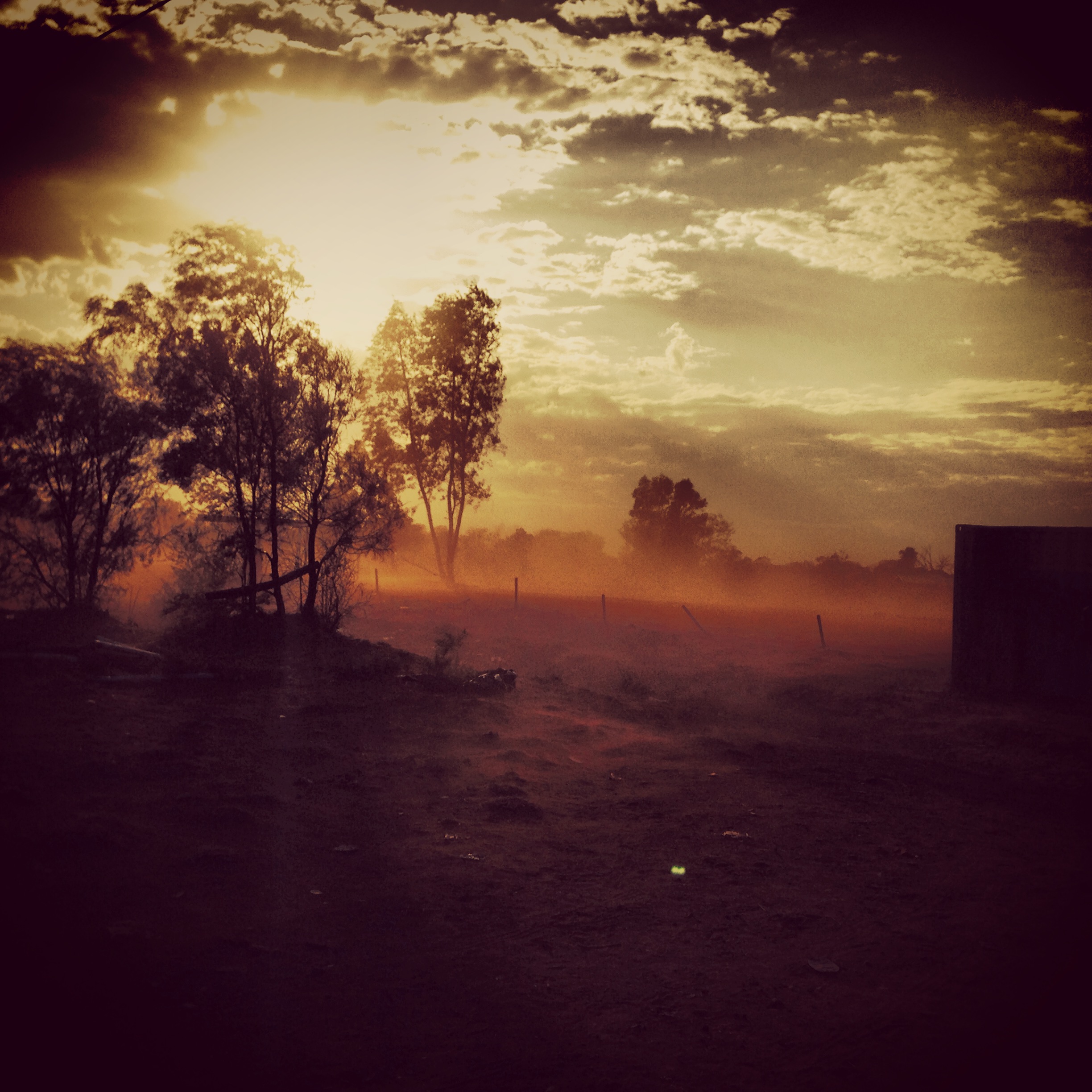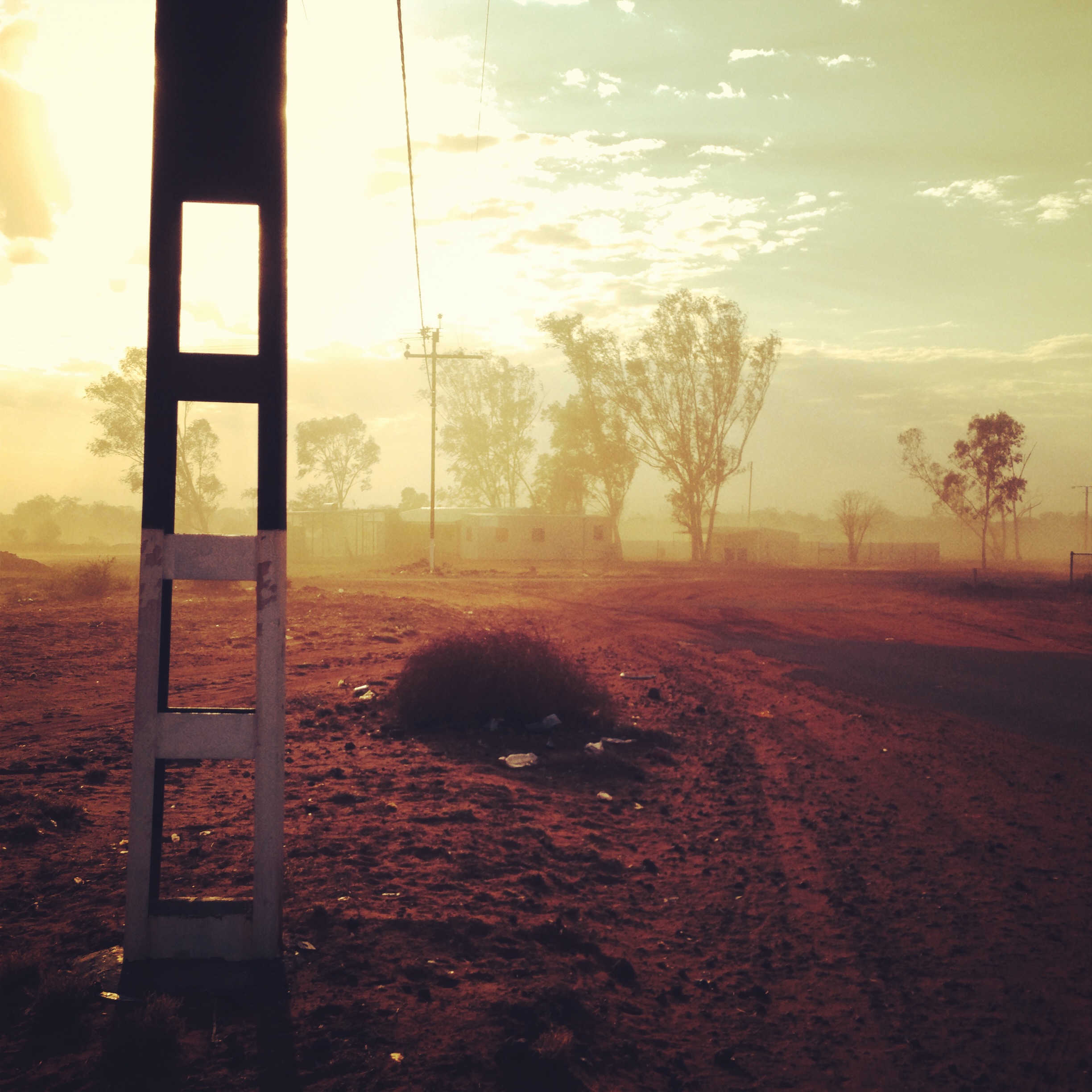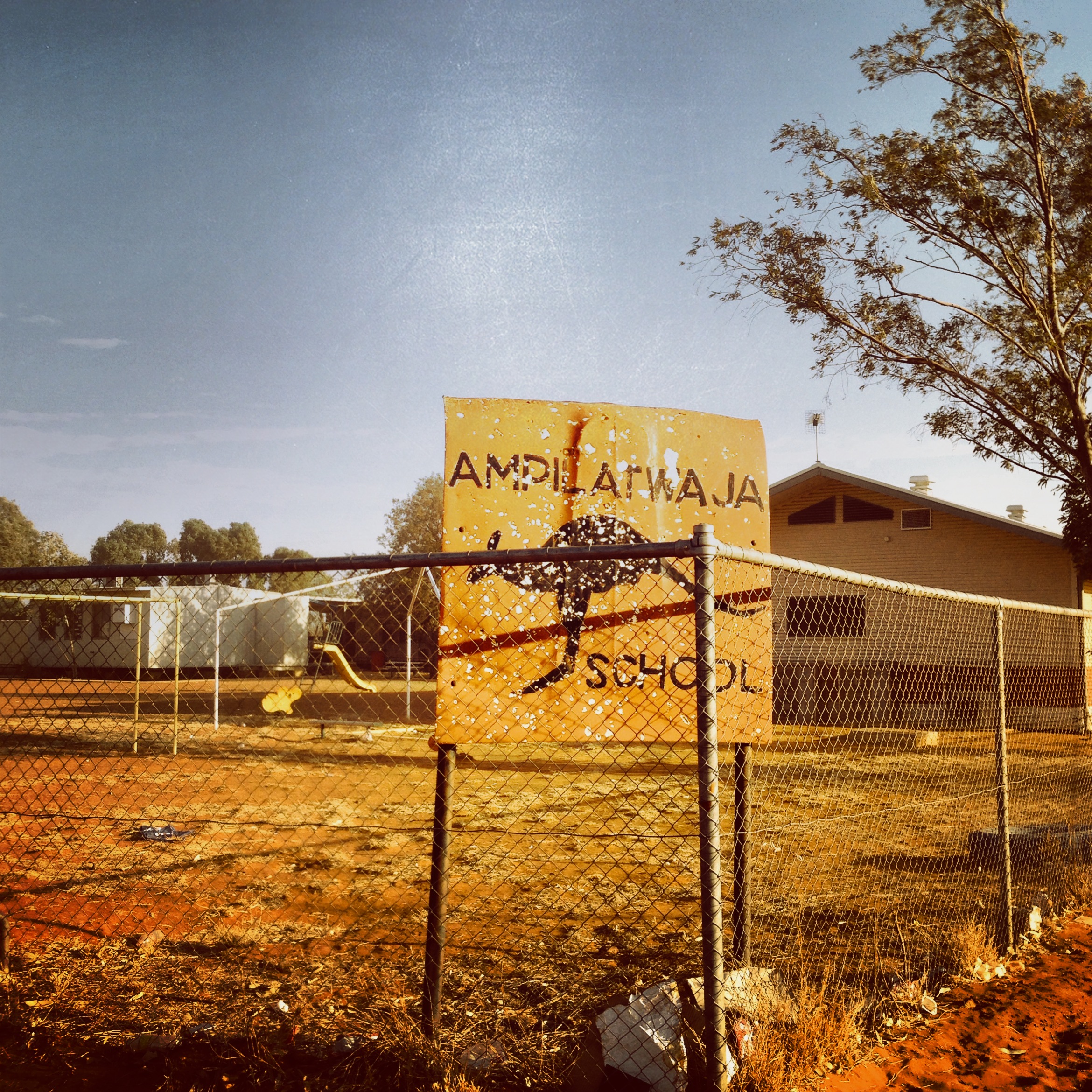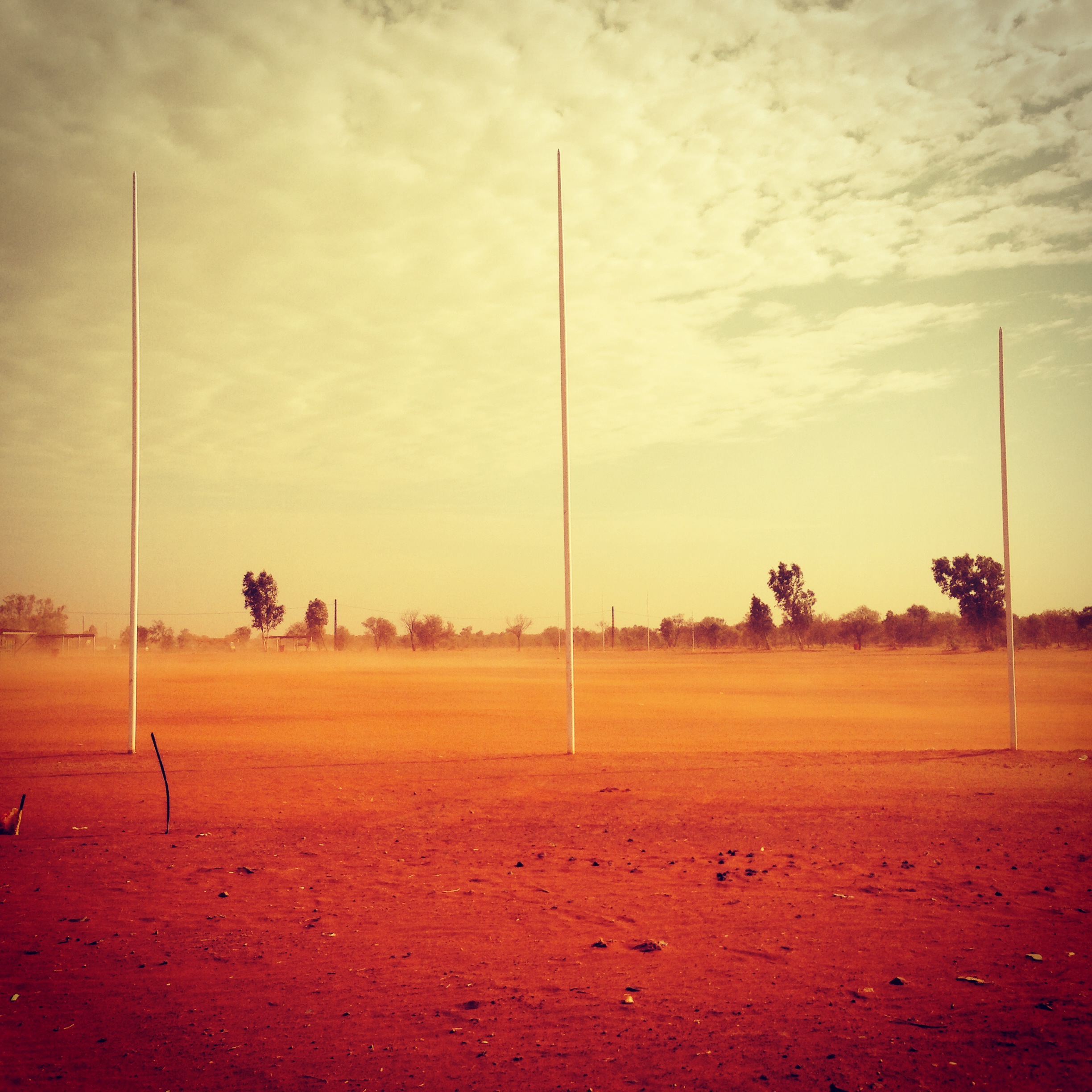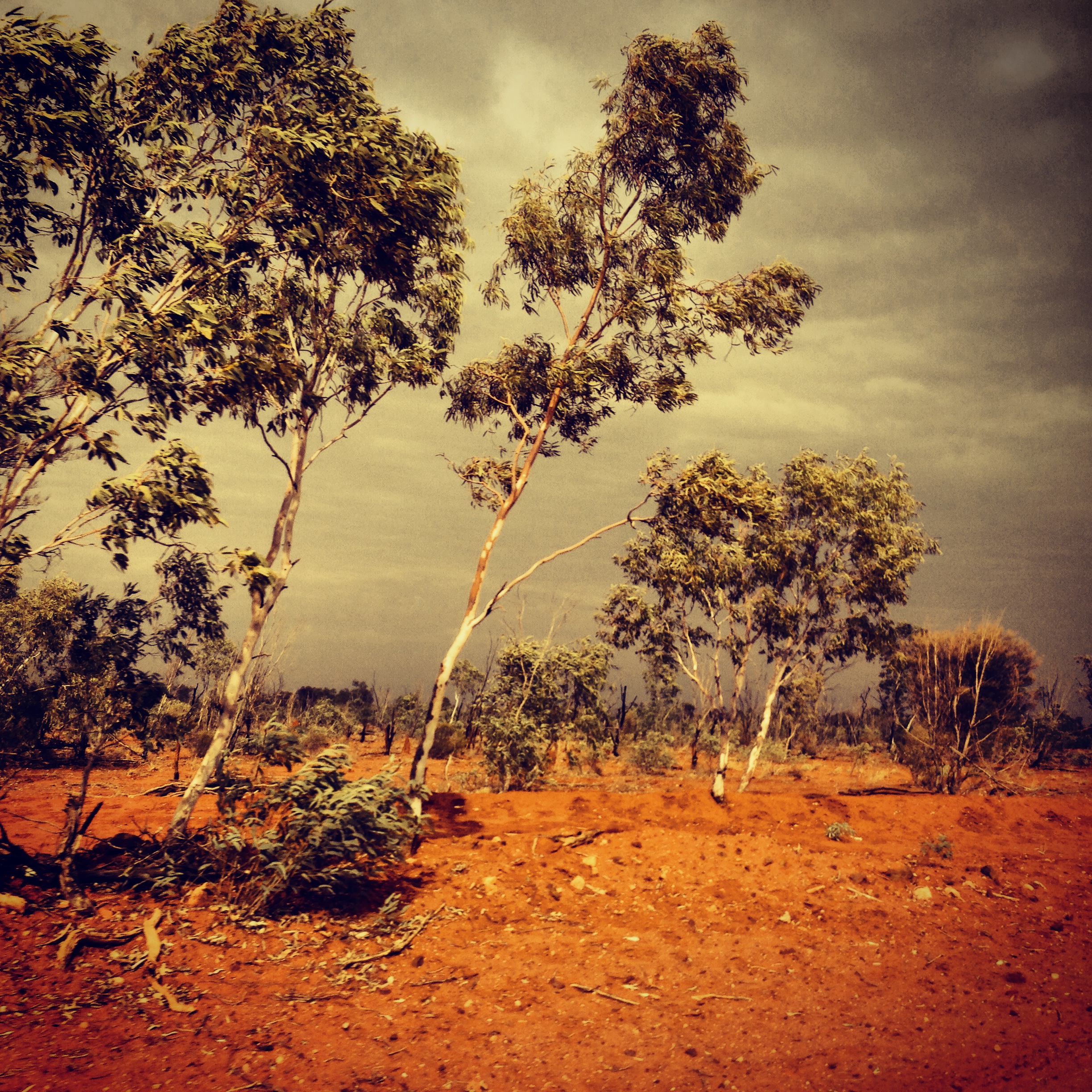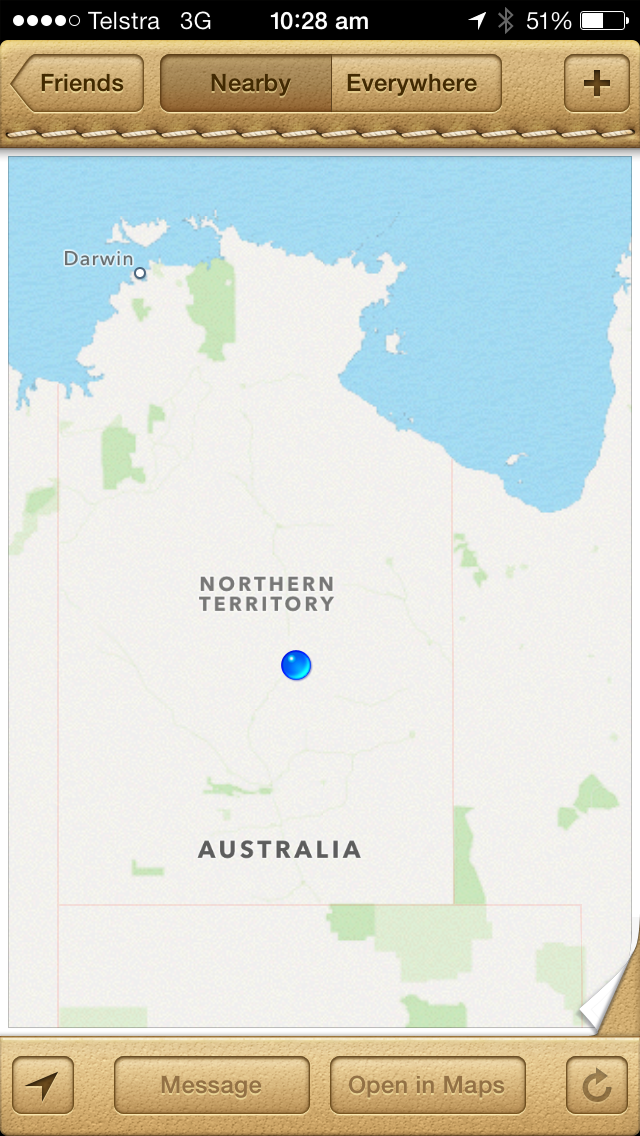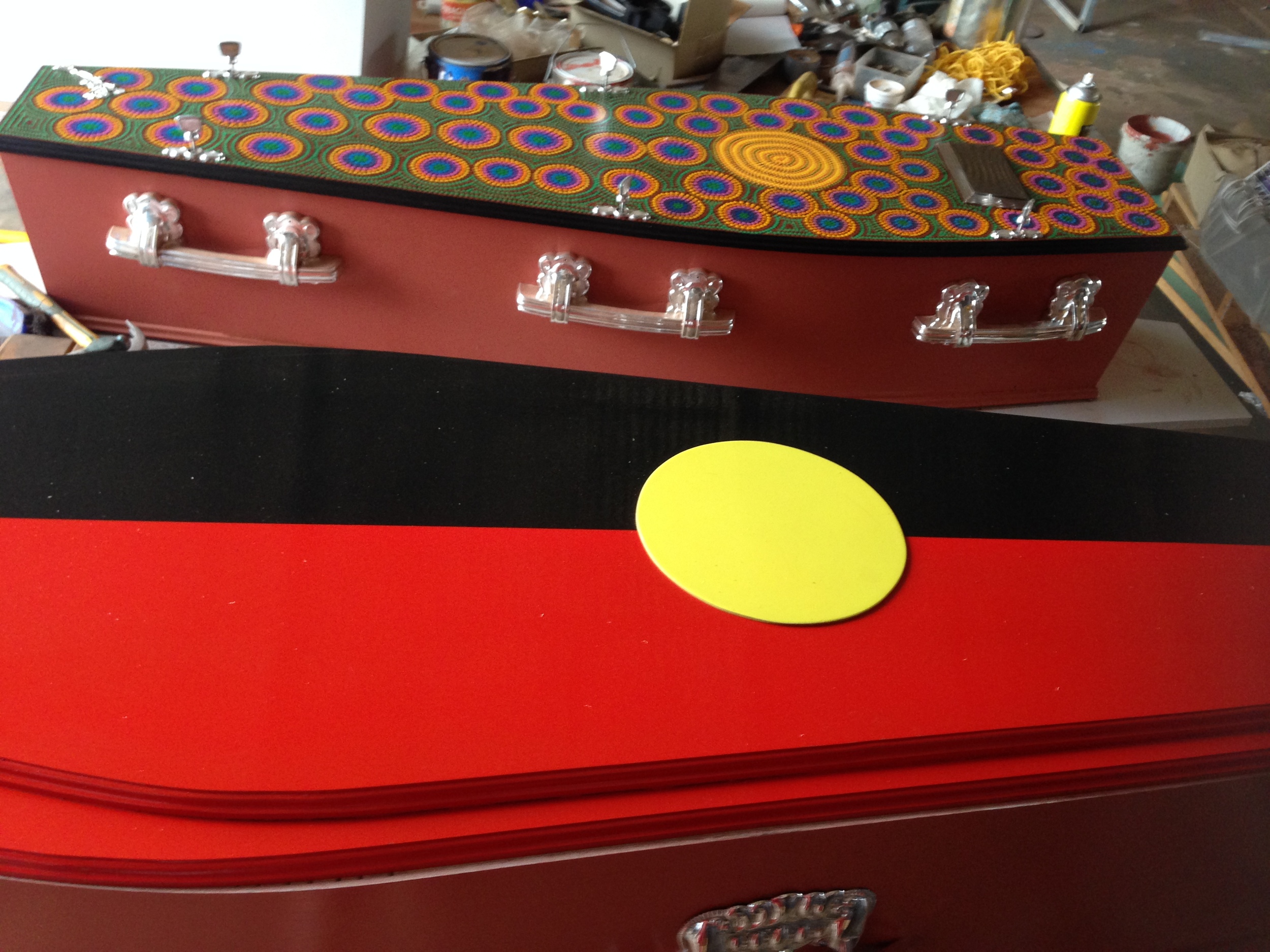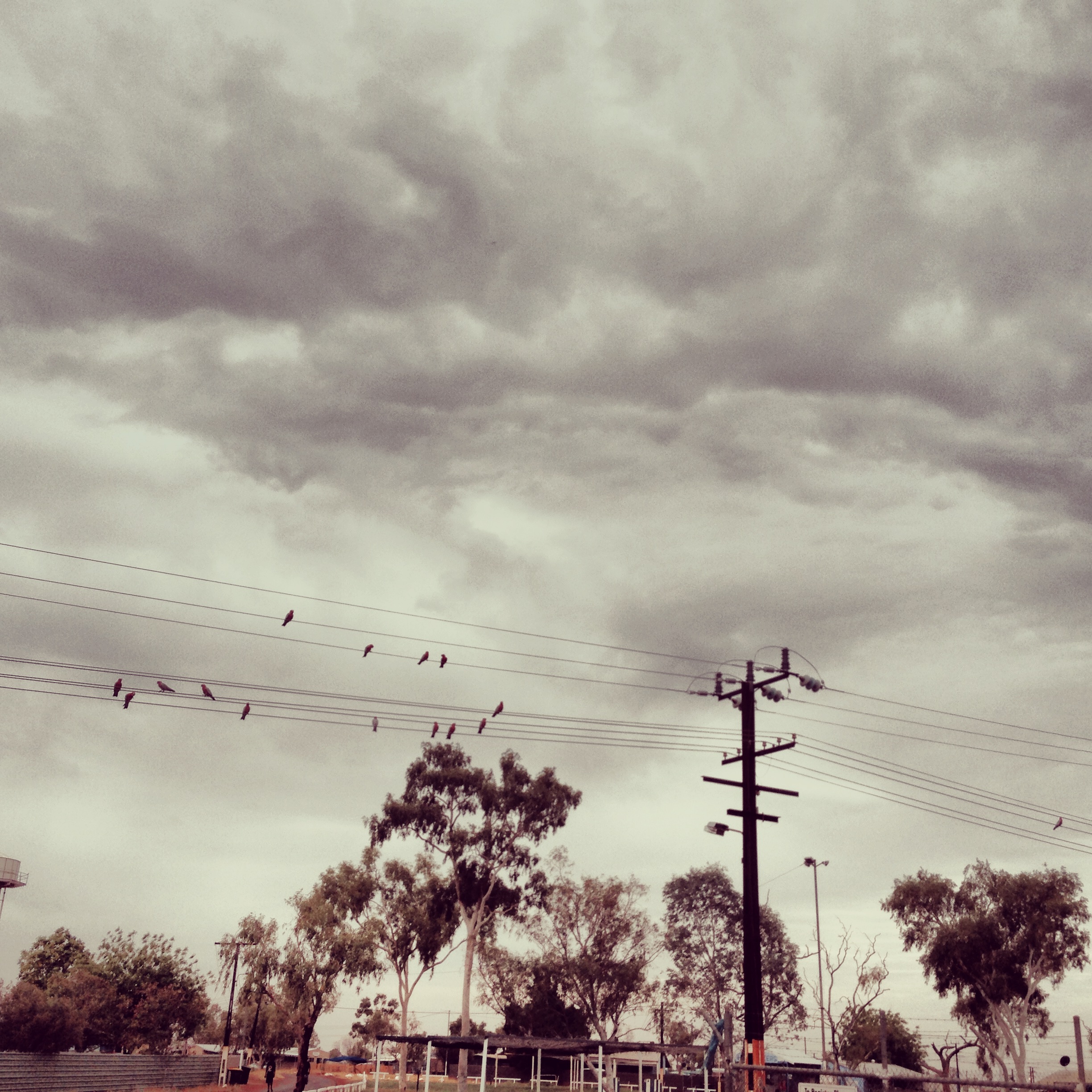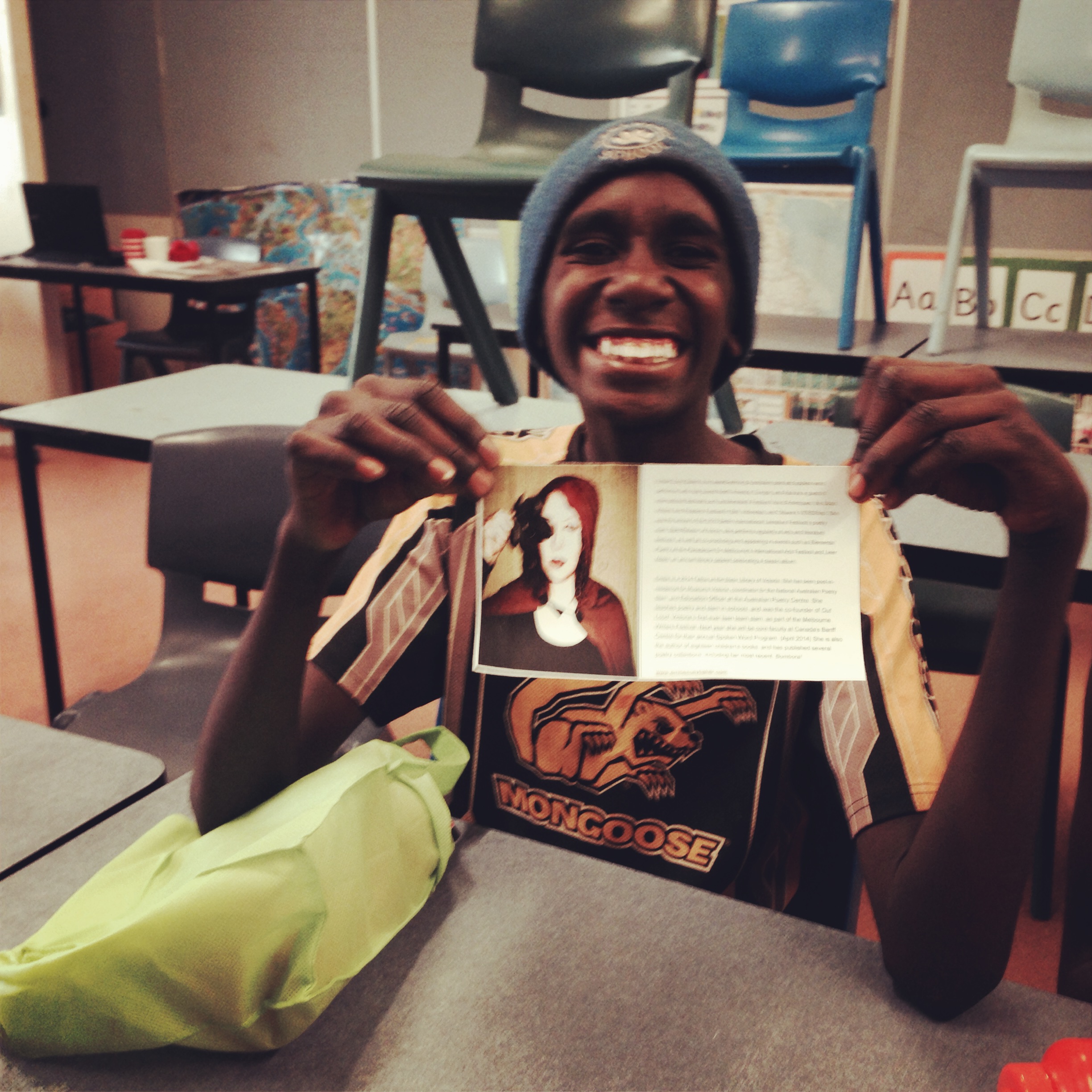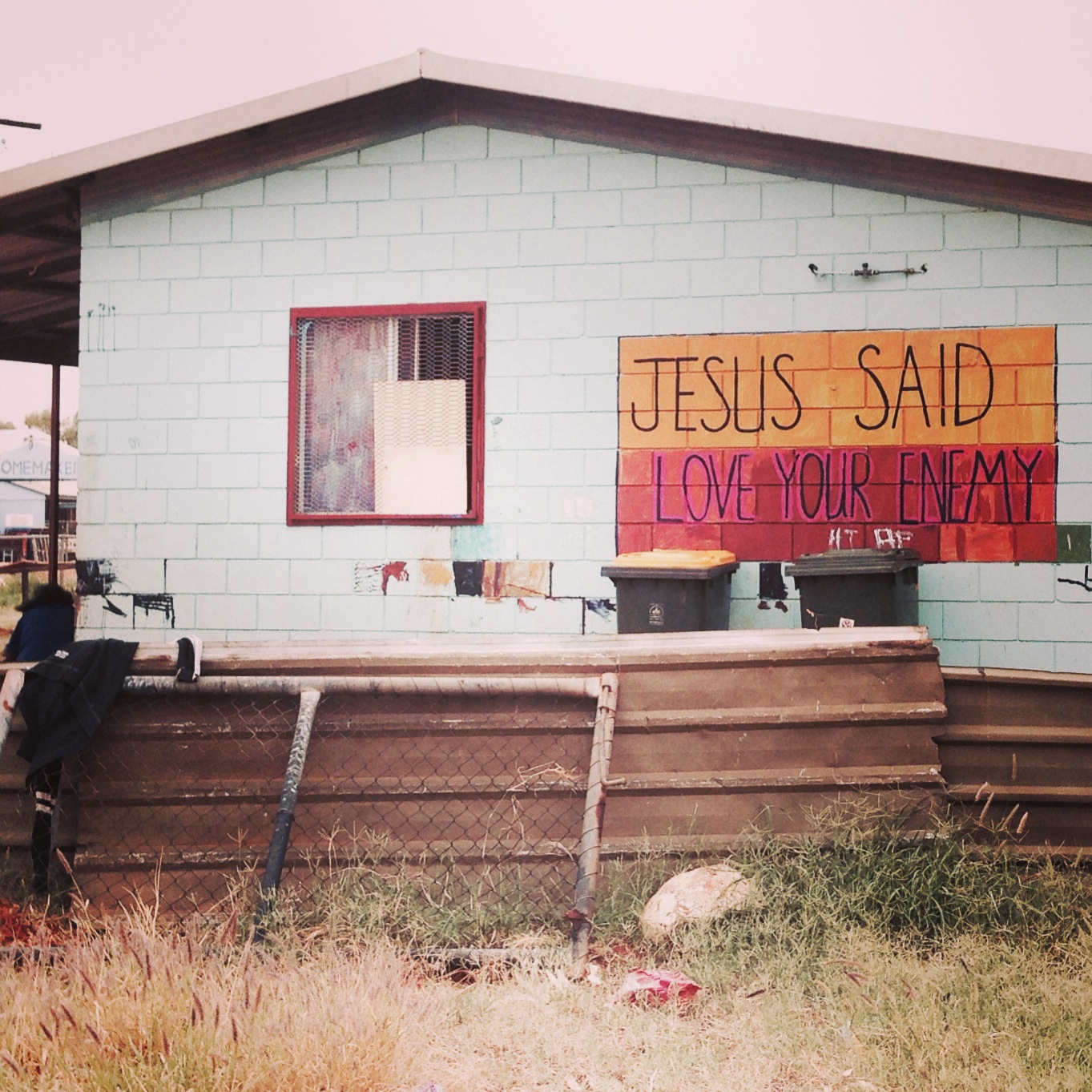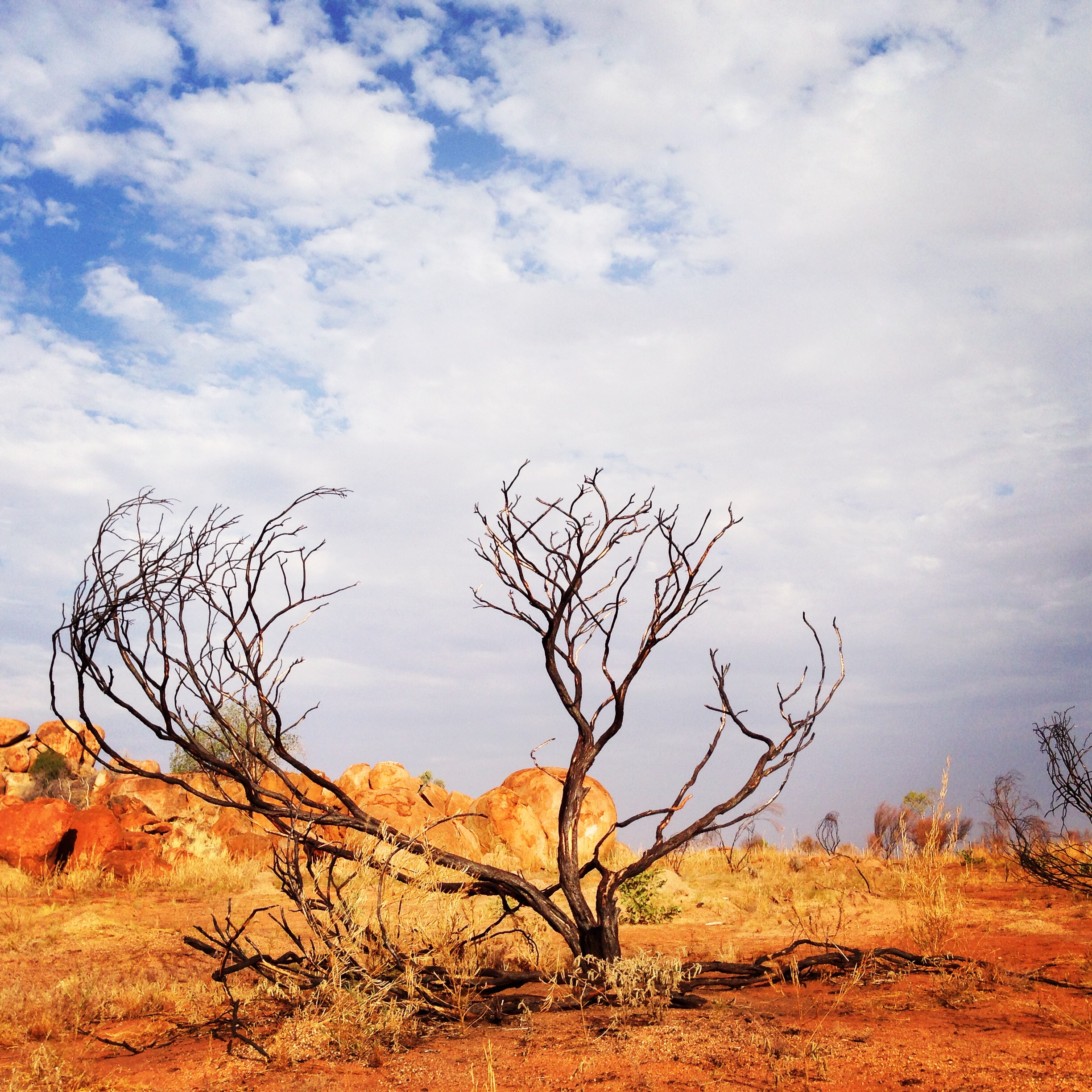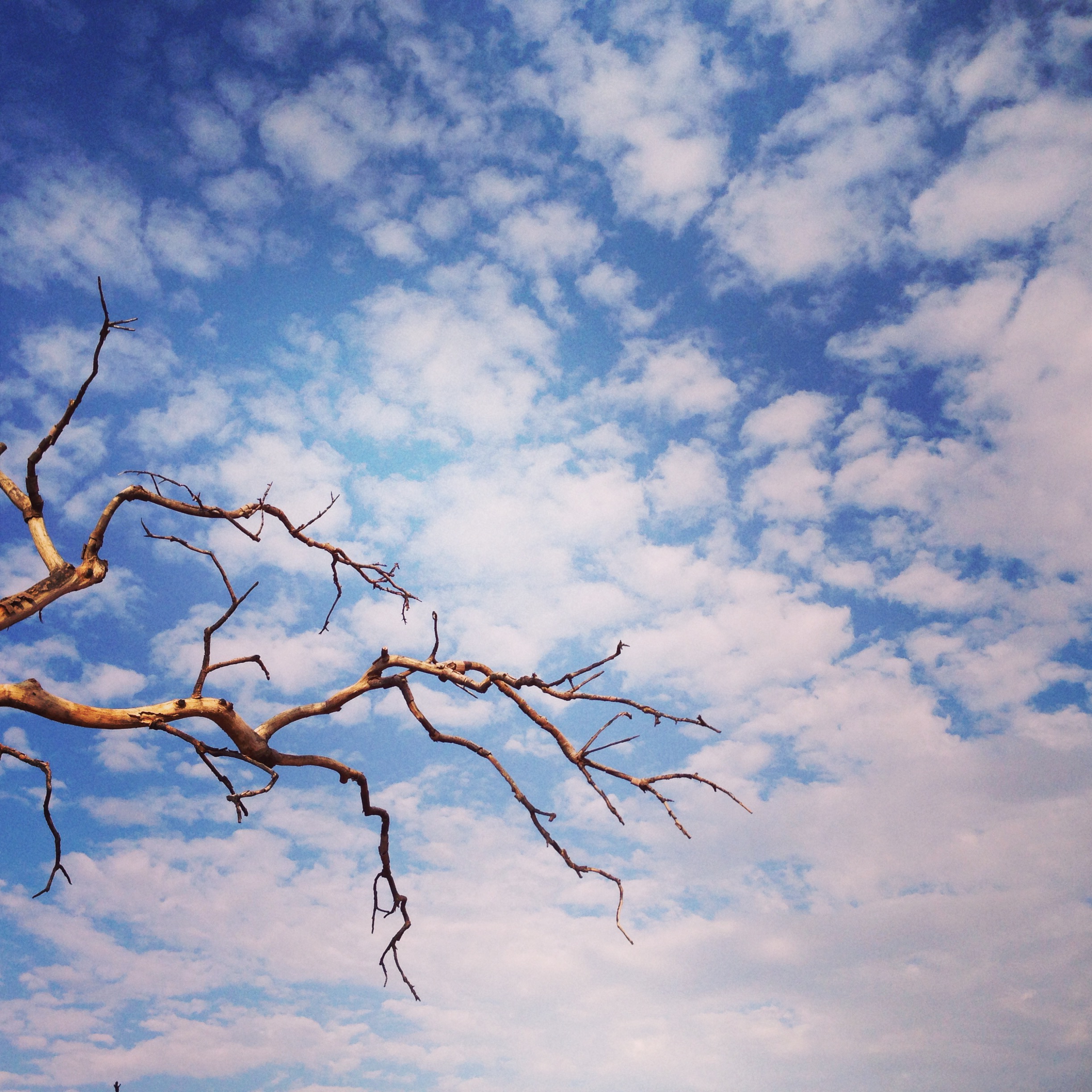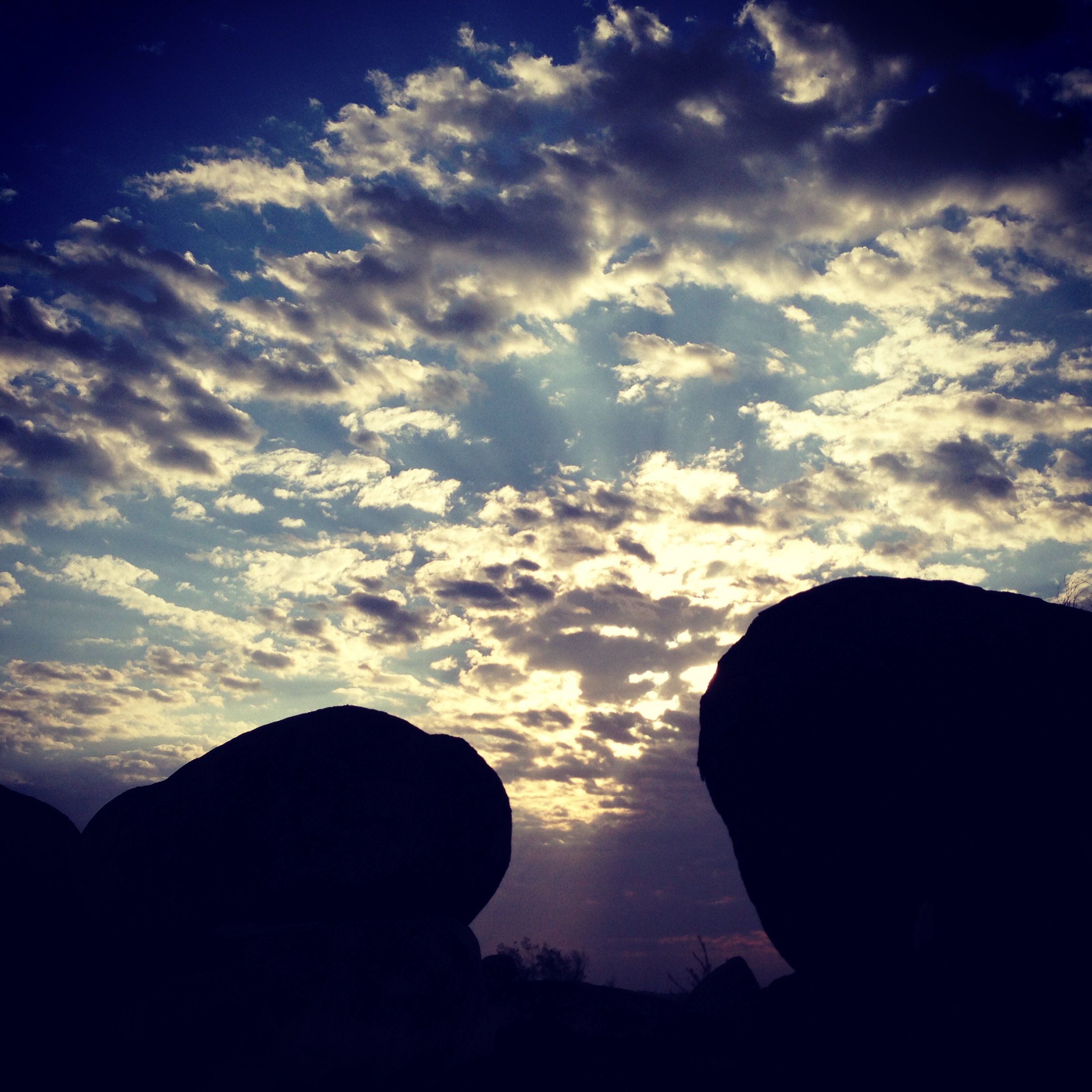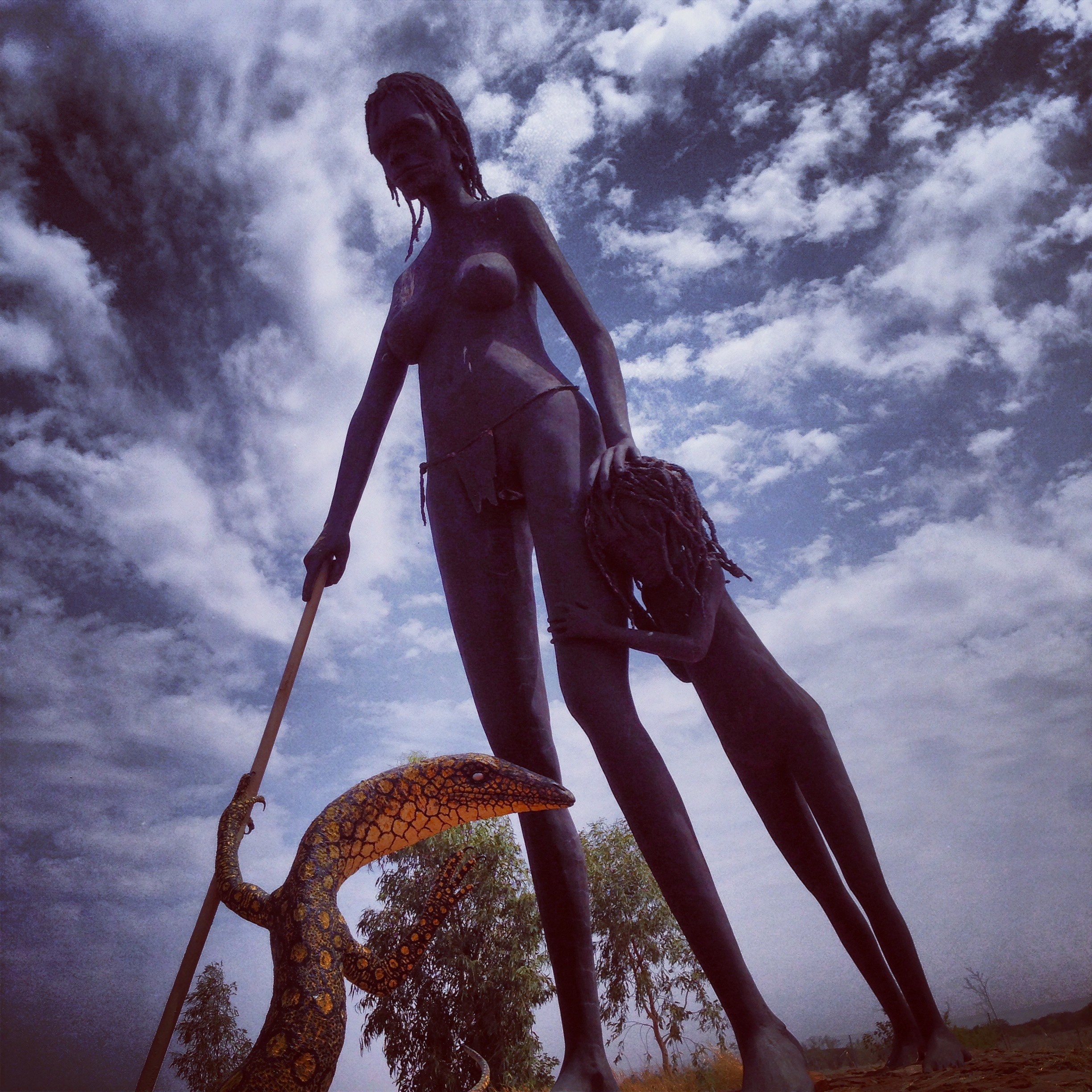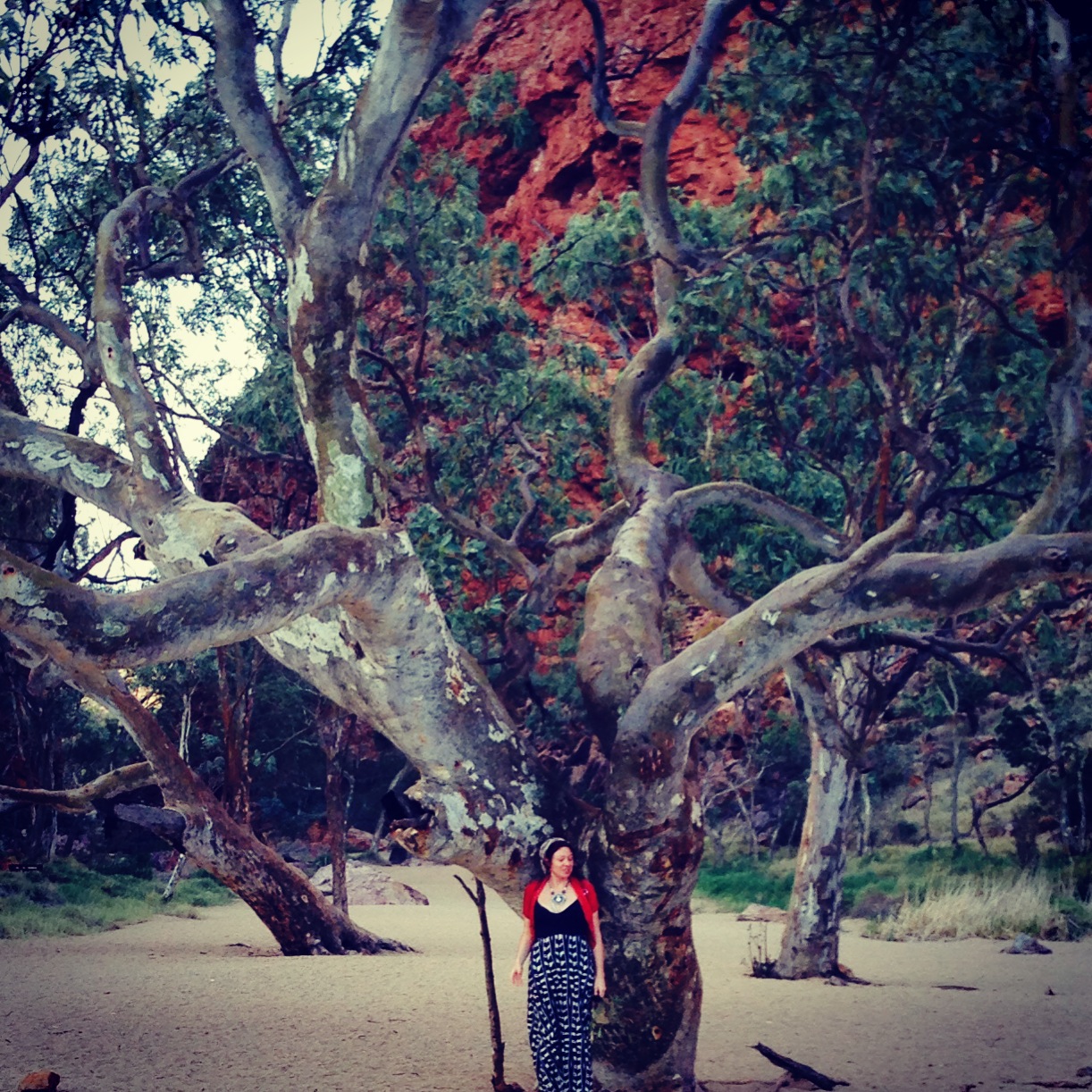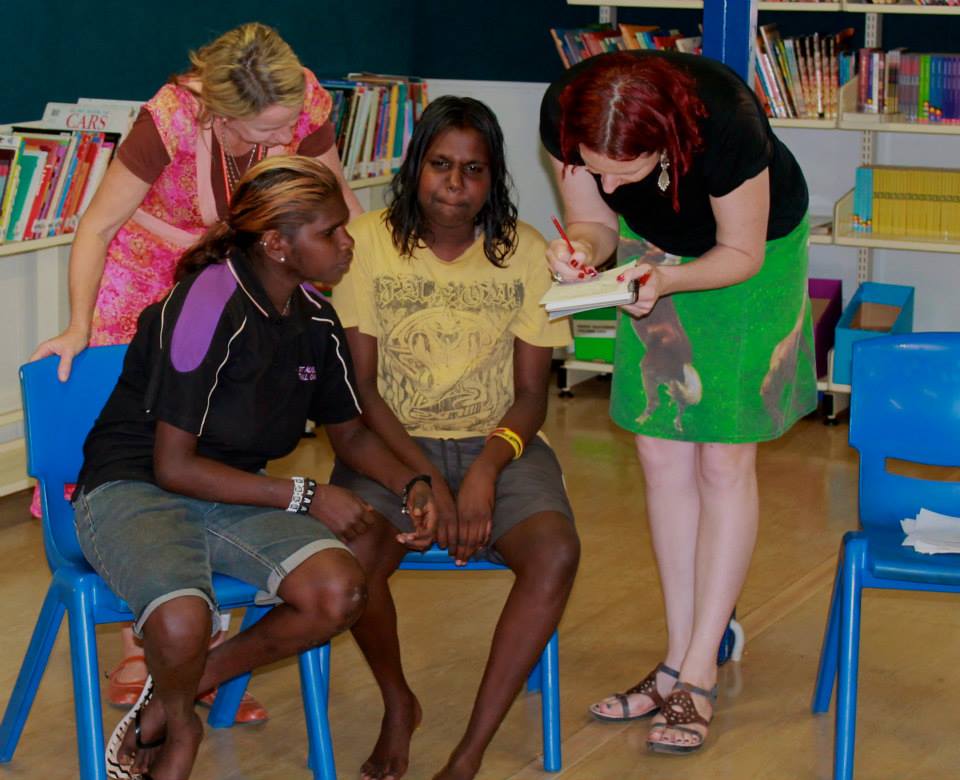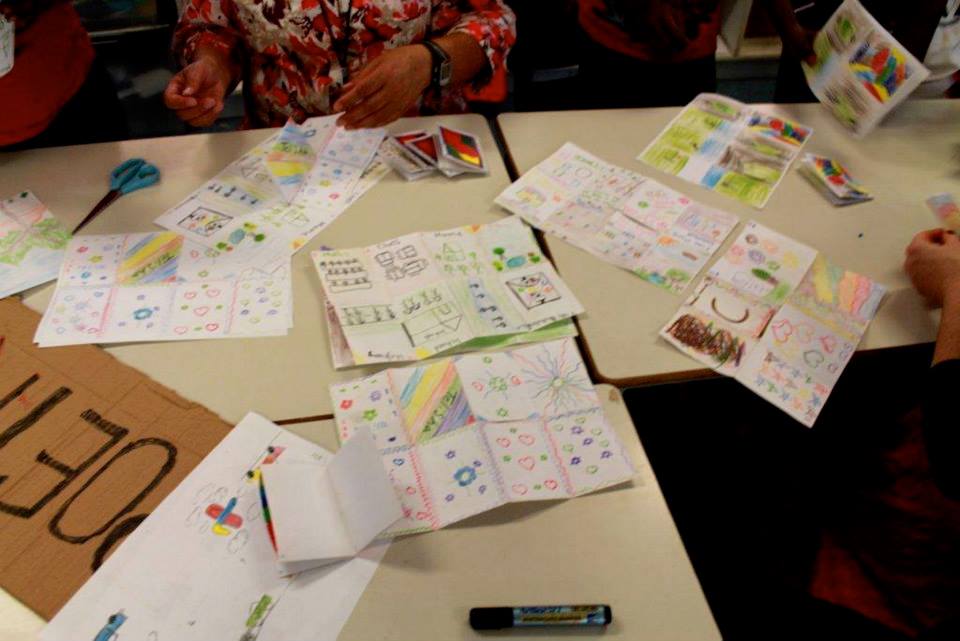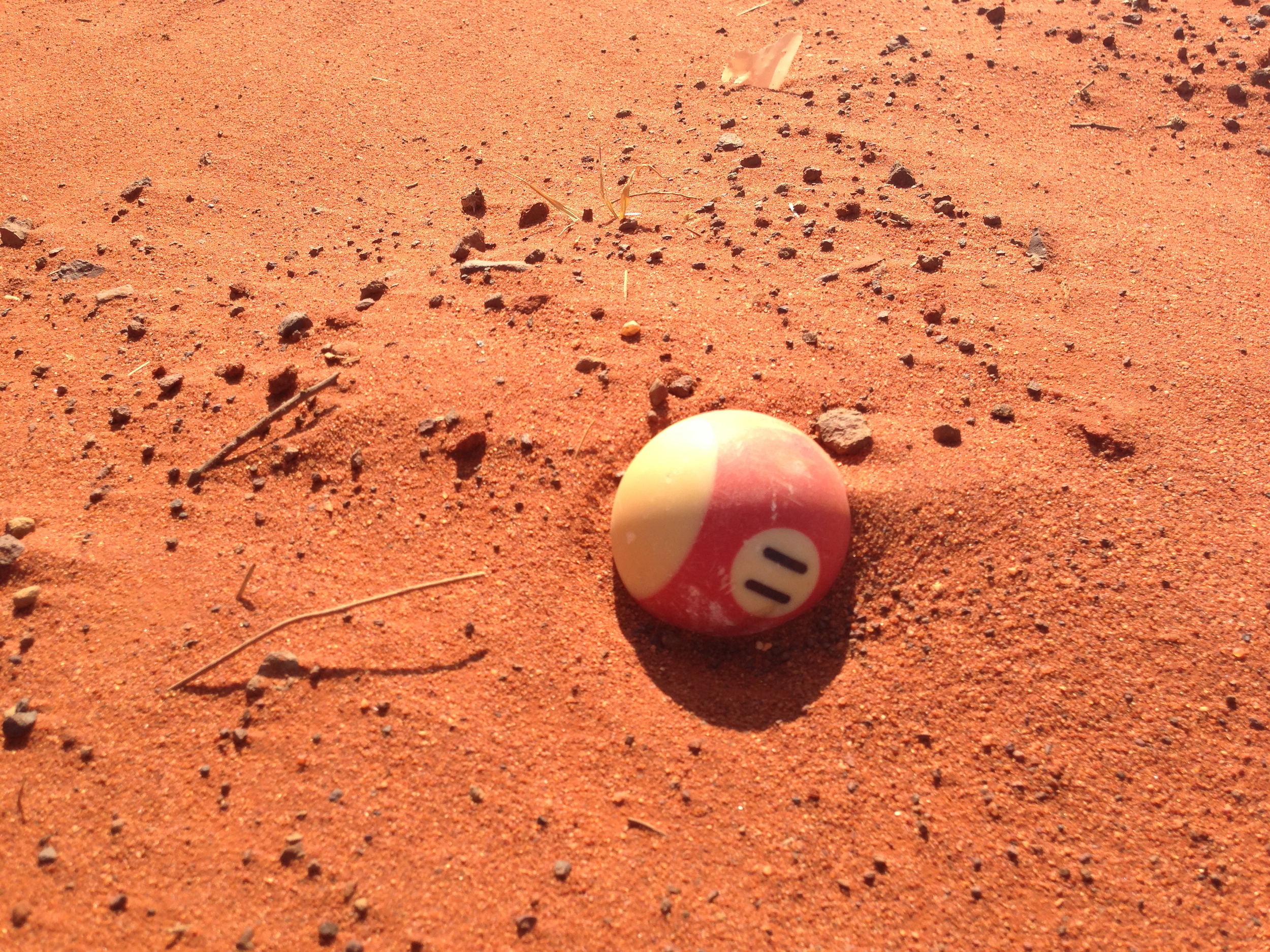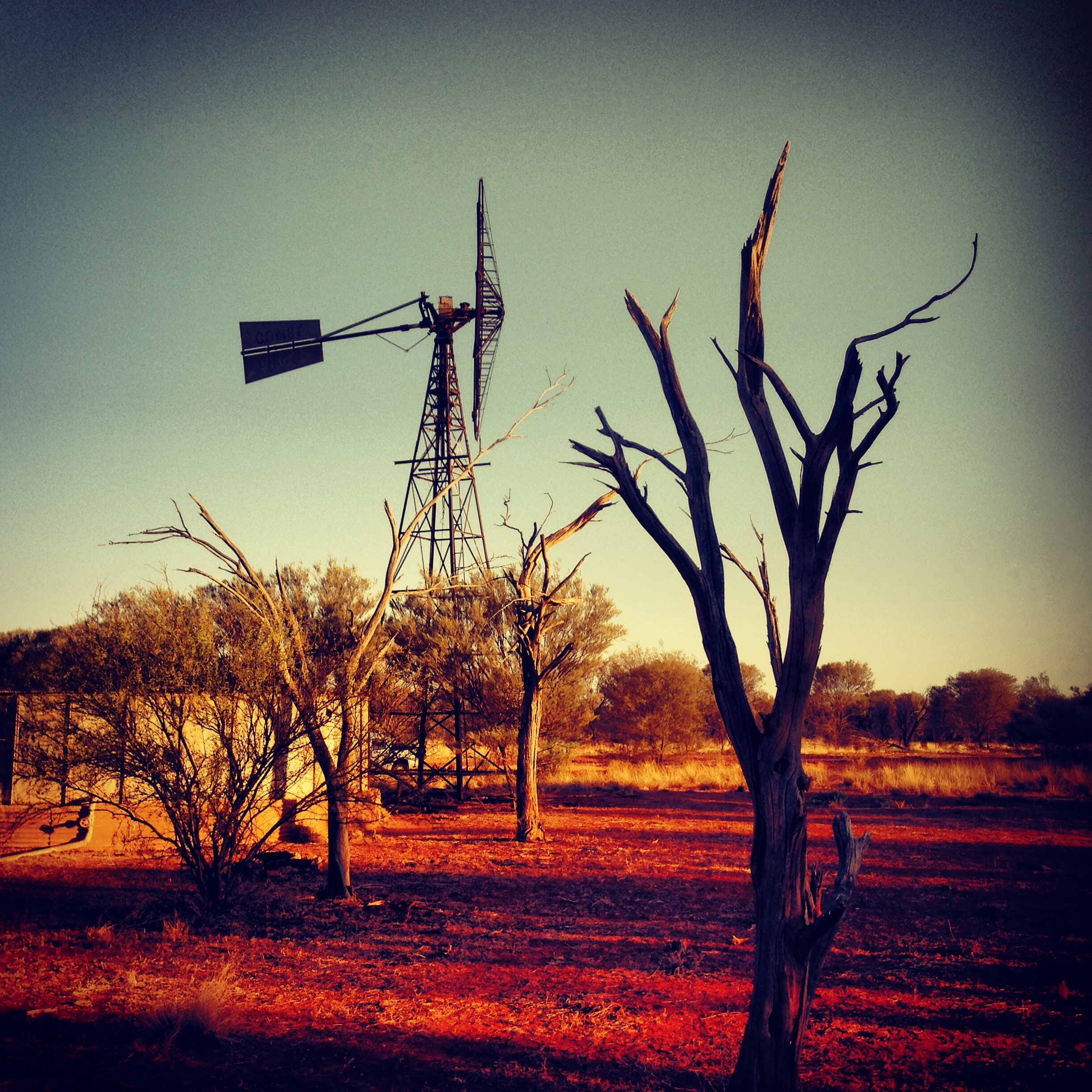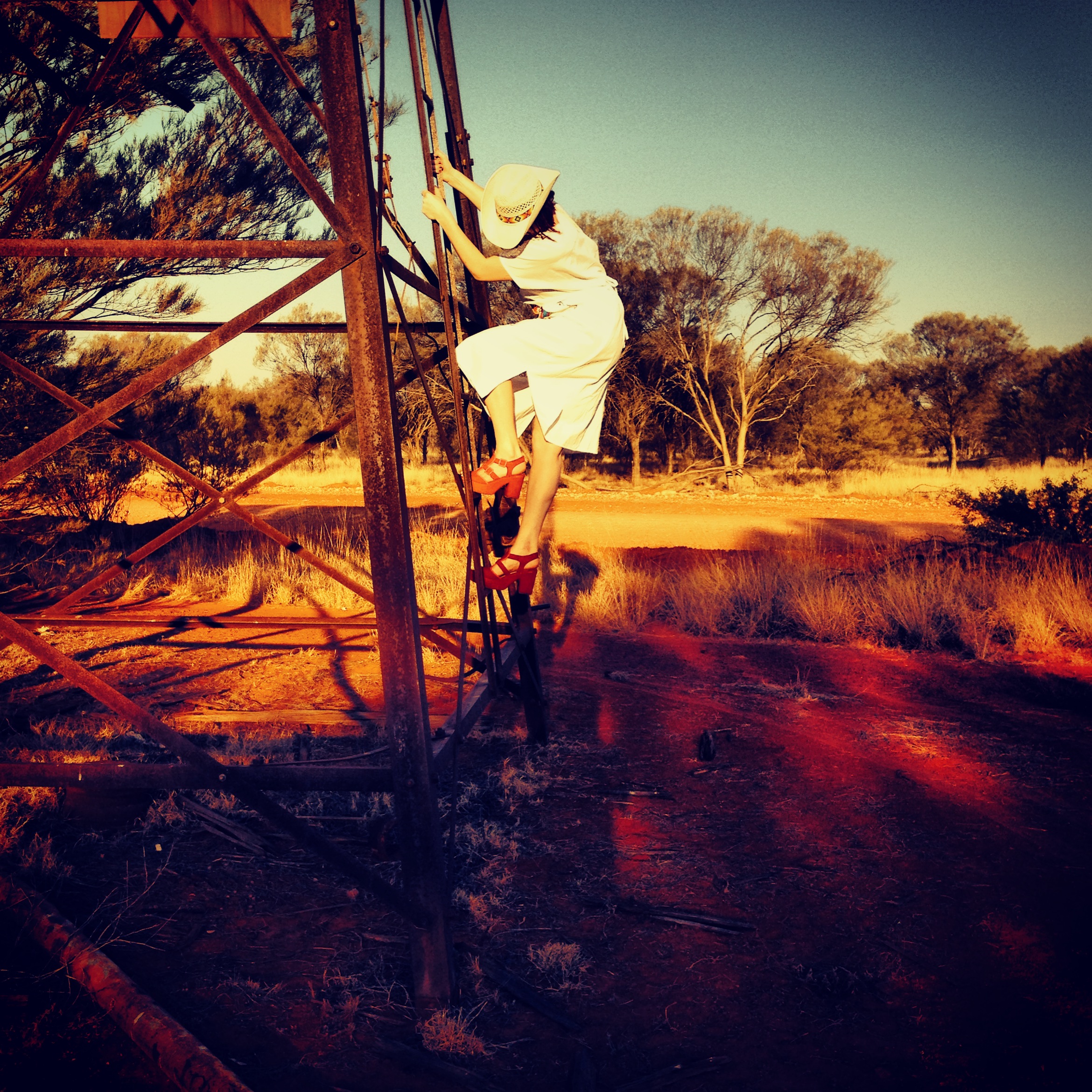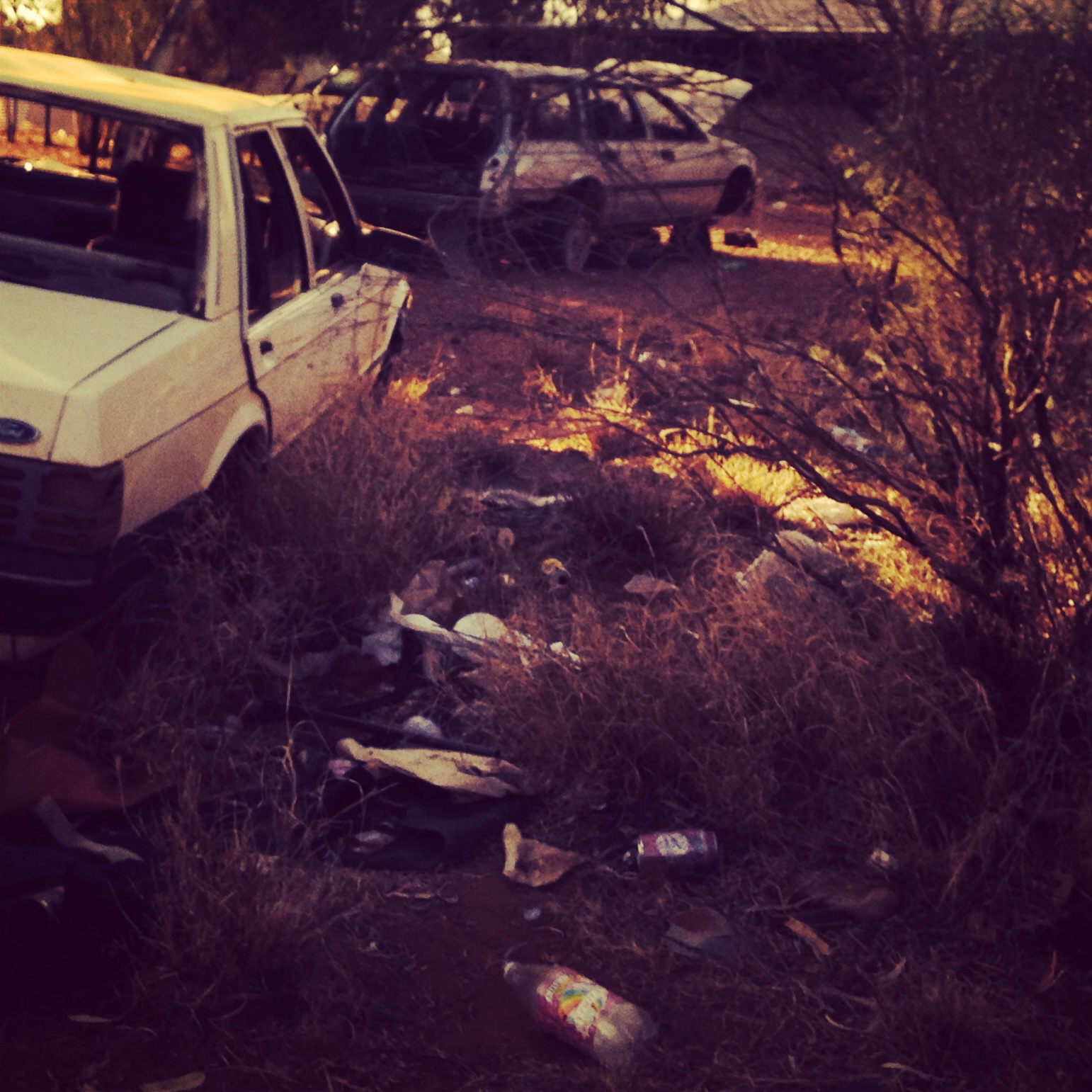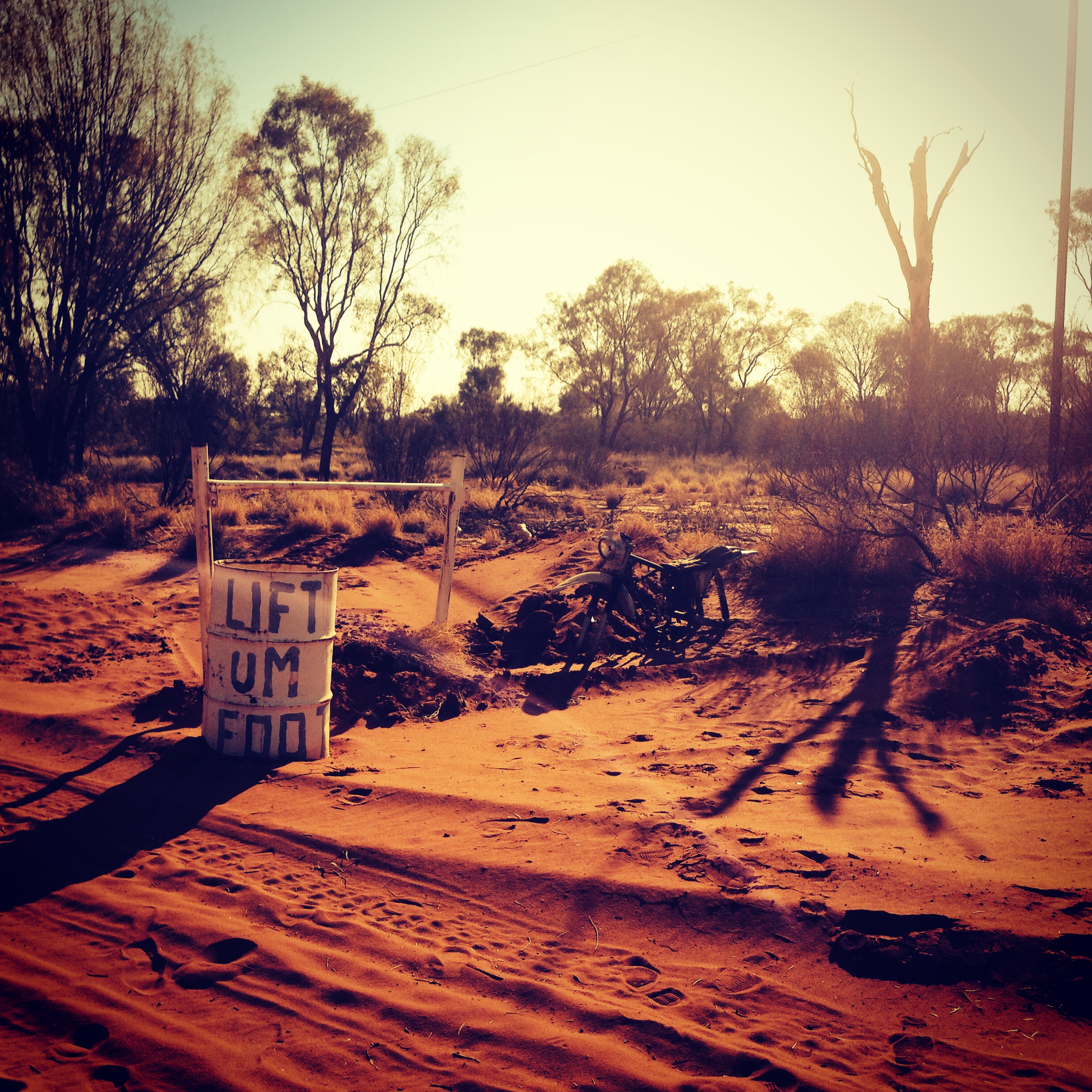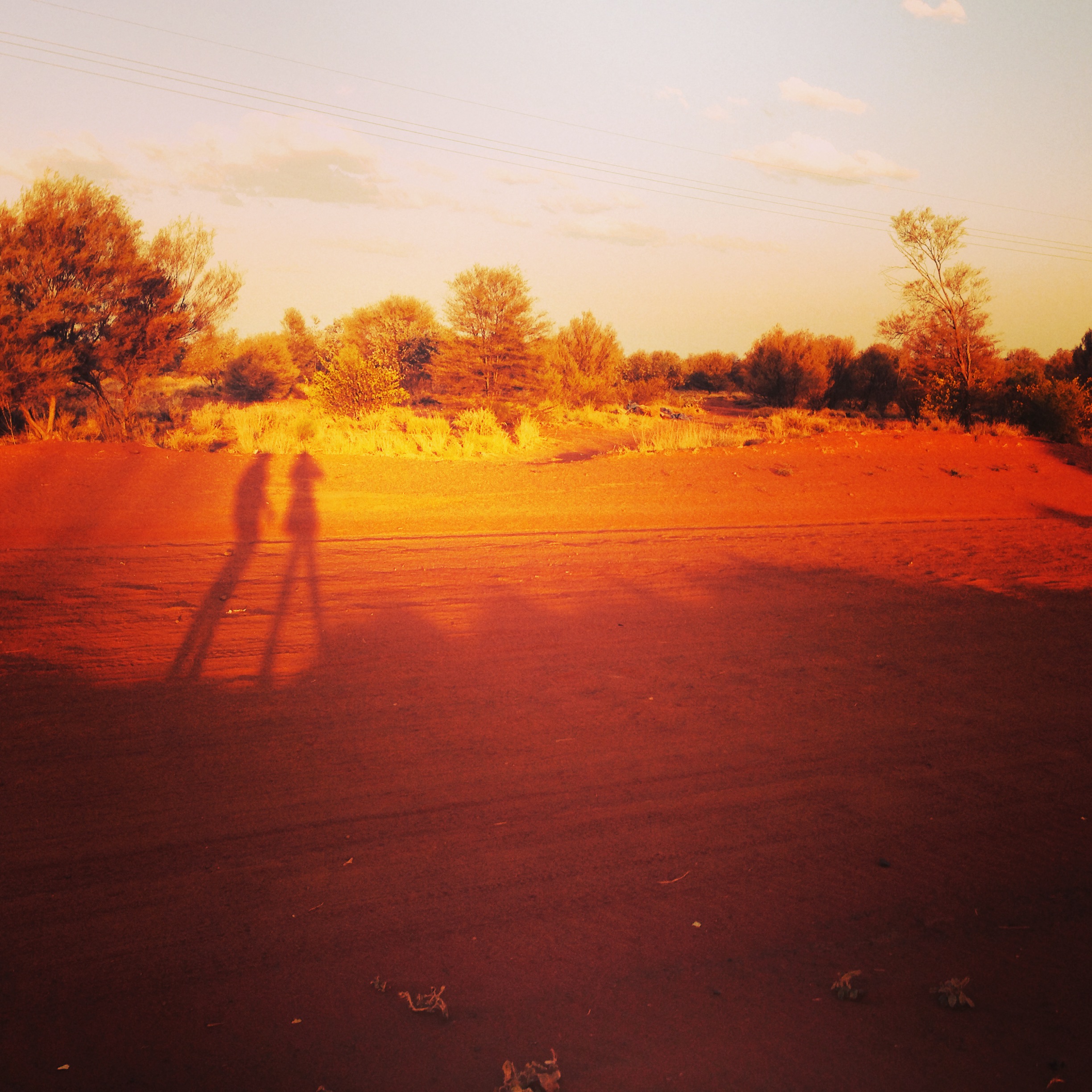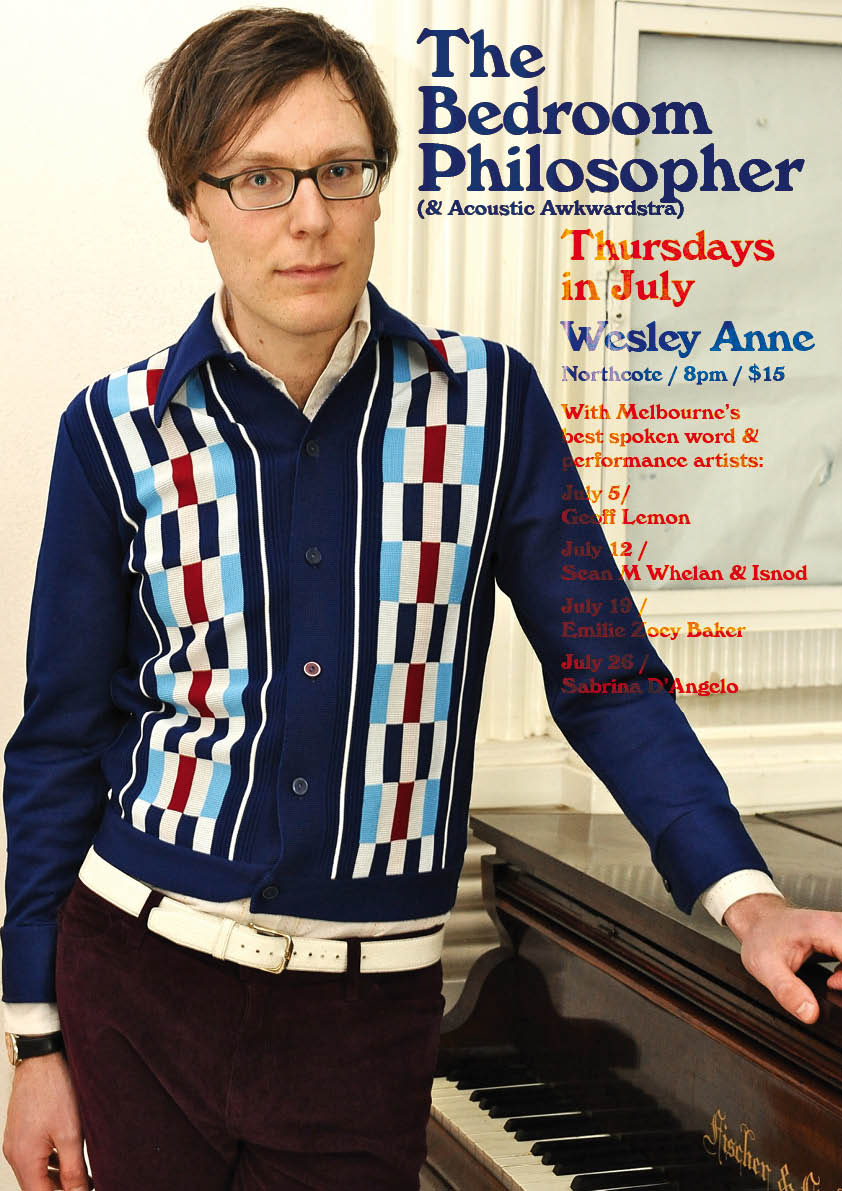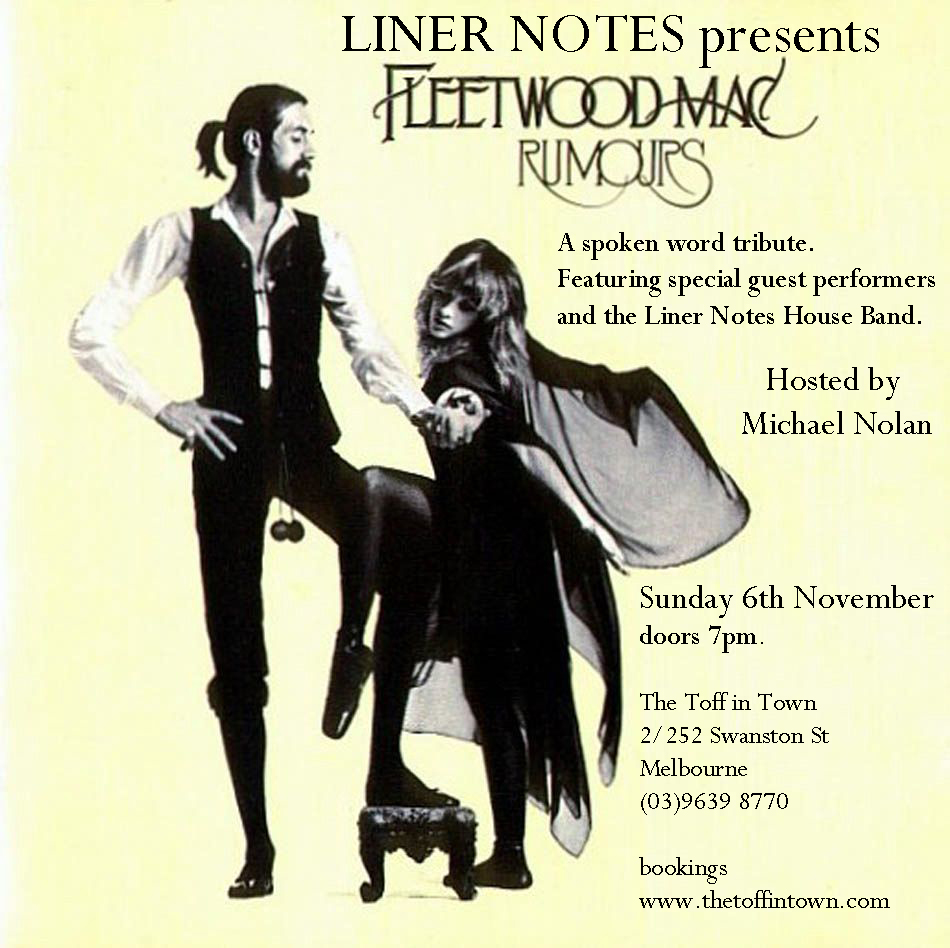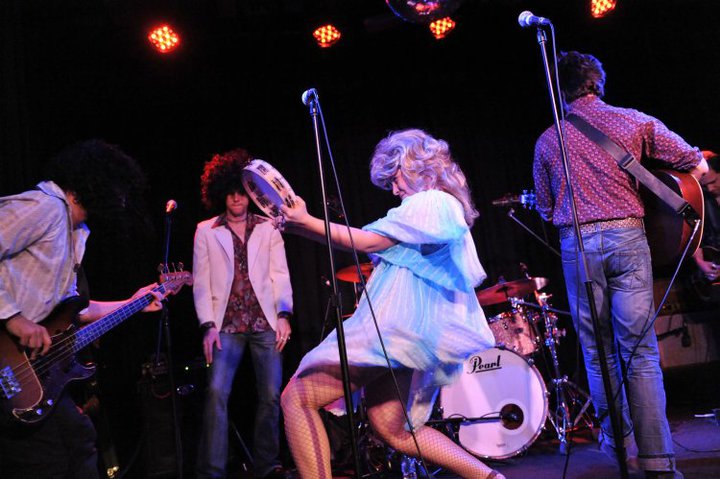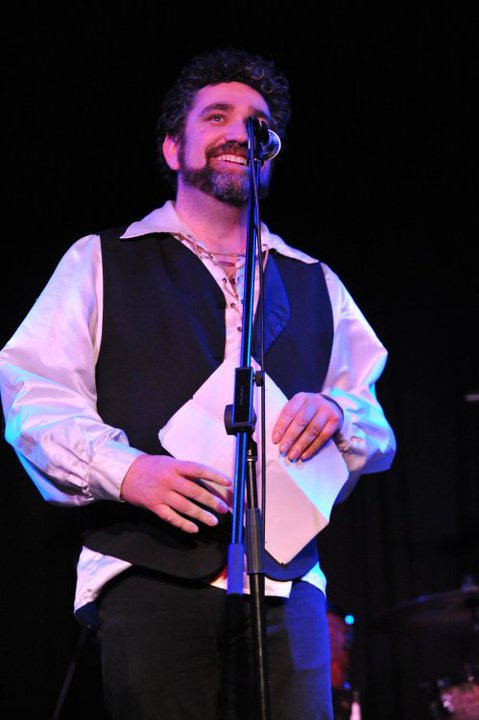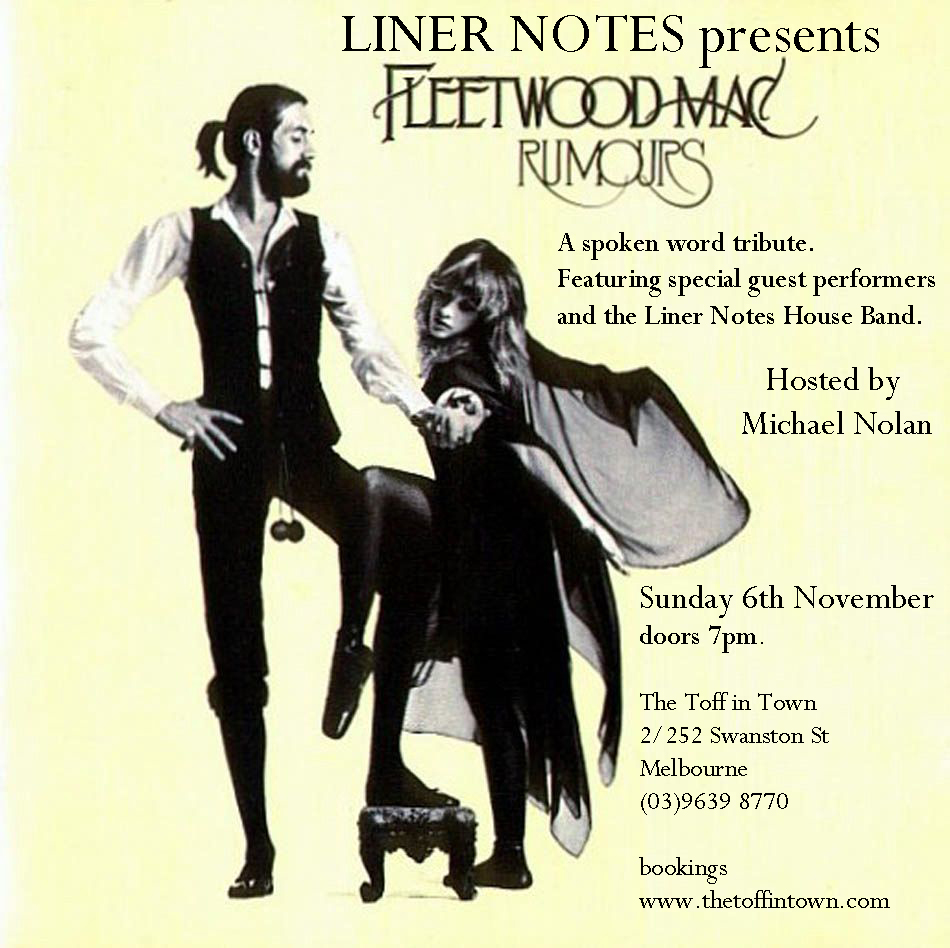I recently did a Lunchbox/Soapbox talk at The Wheeler Centre for Books Writing and Ideas called 'In Defence of Slam' as a response to the Bantick Article in The Australian. It's live online and you can make your eyes go on it here. A few people asked to read the transcript, so here it is below (with extra bits and a photo of a real life Douche-muffin)
A few months ago, I was featured in The Age as part of Michael Short’s series ‘The Zone’, where people from various backgrounds talk about an idea. It’s a one-page feature in Monday’s paper, written by Michael Short. For my moment in the publicity sun I decided to talk about the popularisation of poetry. My pitch was to put poetry on prime-time TV. Screw The X Factor – I want to see something that’s actually GOOD. I’m sick of hearing about the contents of Matt Preston’s stomach, at watching actual paint dry on the walls of The Renovators. I asked people to imagine having their souls unravelled like a ribbon at 7.30pm on a Thursday night. I asked people to imagine a world where young people perform original thoughts and words, instead of singing other people’s pop lyrics to douche-muffins like Kyle Sandilands.  In my opinion, poetry has the power for prime-time. I’m talking specifically about performance poetry, slam poetry. Slam is short-form, usually only a few minutes long. It’s a light-hearted poetry battle, where poets perform their work individually or in teams. Generally, judges are picked at random from the audience and they hold up a score out of 10 for each performer. It works on the idea that poetry is for the people – that you don’t need a degree or a doctorate to judge poetry, it’s about what you like, what you feel, what inspires you to whoop and cheer. It got started in the US in the early ‘80s by a guy called Marc Smith, who wanted to add a bit of sizzle into a normal poetry reading. It’s since taken off and happens all around the world in tournaments drawing audiences to all kinds of venues, from small bars to stadiums. However, as Marc Smith famously said of the competition element, 'The point is not the point, the point is poetry'. And this philosophy is what makes it such a strong growing community.
In my opinion, poetry has the power for prime-time. I’m talking specifically about performance poetry, slam poetry. Slam is short-form, usually only a few minutes long. It’s a light-hearted poetry battle, where poets perform their work individually or in teams. Generally, judges are picked at random from the audience and they hold up a score out of 10 for each performer. It works on the idea that poetry is for the people – that you don’t need a degree or a doctorate to judge poetry, it’s about what you like, what you feel, what inspires you to whoop and cheer. It got started in the US in the early ‘80s by a guy called Marc Smith, who wanted to add a bit of sizzle into a normal poetry reading. It’s since taken off and happens all around the world in tournaments drawing audiences to all kinds of venues, from small bars to stadiums. However, as Marc Smith famously said of the competition element, 'The point is not the point, the point is poetry'. And this philosophy is what makes it such a strong growing community.

[Students from Rutherglen High performing as part of OutLoud 2011]
Slam uses living language to spark debate, propose amazing ideas, offer insight into generational thinking or explore deeply personal matters of identity, self-worth and ambition; it delves into controversial topics, hilarious, deep and brilliant observations about the world. And I believe that would make freakin’ great TV. The article went down well and got a few people talking about it being a possibility. A couple of weeks later, Christopher Bantick, a Melbourne writer and senior English teacher at Trinity Grammar, Kew, ‘responded’ with a piece in The Australian. He was appalled at me for suggesting such a thing. He finds the thought of poetry being on TV, aiming for a popular audience, is nothing short of horrifying. And sadly, Christopher represents a not uncommon view among some in the poetry world, that poetry is sacred and must be appreciated quietly in high towers, on the page, with time to pick apart its meaning and absorb it, to sup from its worthy benevolence… I hate this elitist idea of poetry, the way it dismisses slam and performance poetry as somehow lesser art, and I think it’s worth refuting some of its daft claims. Christopher Bantick starts off his article by offering me his deepest respect: “In case you didn’t know, Australian performance poet Emilie Zoey Baker is the international poetry slam champion.” Well, actually I’m not. He was referring to how The Age described me. It was an unfortunate overstatement of my success in a slam in Berlin, but hey, we get the point: as if anyone’s even heard of me, an 'international champion’ of nonsense. He continues: “To assume that slam is poetry is enough to make the muse mute.” Yep, he uses the term ‘muse’ without any irony, making him sound like Monty in Withnail and I.

“Still, it’s not Baker’s slam success we should be worried about.” Thanks, Chris! “It is her suggestion that poetry should be on prime-time television and replace programs such as MasterChef. What Baker and her fellow versifiers have failed to understand is that celebrity poets do more harm than good.” Ah, yes, celebrity poets, like, um… ahhh, oh, he’s probably thinking of… um… ...
...
If he means the only contemporary Australian poet people have heard of – Les Murray – well, perhaps he has a point. Murray’s contribution to John Howard’s Constitutional preamble – “We’re a nation of mates” – didn’t do much good. Or maybe he means celebrity poets like Henry Lawson or Banjo Patterson? Very popular in the day, published widely and regularly, read by all and learnt by heart by many. Harmful! No? Well, Christopher, could you give us an example – any example – of a harmful celebrity poet? Or any celebrity poet at all? Nope? Well, touché.
He continues: “According to Baker, poetry needs to be slammed into us: Whether you like MasterChef isn’t the point here. [ Although I am starting to get the feeling Christopher wears a bandana with little Matt Preston faces on it every night during MasterChef.] Poetry will not regain its place in the national conscience by our reducing it to a public mosh-pit. According to Baker, Australia rejects poetry [Er, no, I didn’t say that] and hence her evangelism for pop poetry extravaganzas. But the problem with poetry is not that it is overlooked. Rather, it depends what kind of poetry we’re talking about. Those who know what great poetry is covet its place in the culture. Pop poems may pull the punters to pubs, but that’s all…” So here we get to the nub of Christopher’s dismay – what I’ve proposed involves popular poetry, not great culture. People might like it, but it would have no value. What a dismal prospect a tour through Christopher’s record collection would be. From classical to classical, all the way through the classics to some classical. Great works, each pitched directly to the soul. But that’s probably not true... He’s probably got some Cat Stevens. Some James Taylor perhaps, and Miles Davis’s Some Kind of Blue, a cherished Dylan record or two from his youth, Paul Kelly’s hits compilation. He’s likely comfortable with the idea of ranging interests in music, with different material suited to different purpose, but each creative, valuable and rewarding.

Why should poetry be different? Why is the thought of a popular form of poetry so frightening? Why can’t poetry be loud and brash, delivered with passion and energy, readily understood, thought-provoking and entertaining all at once? There’s no threat in trying to popularise poetry, to give it new shapes and a new audience. I’m not suggesting slam poetry should somehow replace all other forms – any more than Christopher’s teen flirtation with The Beatles means he has to throw out his Brahms. No one is saying DROP THAT JUDITH WRIGHT ANTHOLOGY and meditate on these Kanye West lyrics. Burn volumes of TS Eliot and beat old people for reciting Wordsworth. Why can’t slam or other popular styles be added to the ways our culture expresses itself? Why can’t we enjoy Judith Wright as well as Brisbane performer Ghostboy, or Maya Angelou alongside Melbourne’s own Sean M Whelan?

“Poets such as Baker,” Christopher says, “who want to give us wham and slam, need to face this reality. Their poetry depends on personality and pyrotechnics, but as poetry it does not scan. Good poetry takes time to understand. It takes emotional and intellectual investment. The buy-in is something more enduring than a bright flare of words.” The argument is that ‘pop poetry’ can’t be taken seriously because it’s not any good. It most certainly cannot join the ranks of great art. Well, slam poems may not be likely to peer down imperiously from history’s marble plinths in the centuries to come, but sneering newspaper columns probably won’t be recounted with reverence either. Does that make it all worthless, or unworthy? Not all slam poetry is great, of course – I’ve seen some shocking crap. But I’ve also seen bad music, bad art, bad theatre, bad opera and bad journalism.
It’s clear to me that Christopher hasn’t ever been to a slam. He hasn’t seen a crowd leap to its feet as a coruscating critique of our modern lives ends with a redemptive cry to pull together to do better, as in Omar Musa’s ‘My Generation’ which was recently performed on ABC’s QandA, it stirs something in audiences of all ages. And he’s probably never seen Taylor Mali, whose poem ‘What Teachers Make’ has attracted 3,216,989 views on YouTube (which is disturbingly like bringing poetry to the masses on TV). A page on Taylor’s website called ‘1000 Teachers’ is a list of people that have been so moved by his poetry that they chose to become a teacher. But no, apparently pop poems only pull people to pubs, and that’s all. Just another celebrity poet doing more harm than good.

And despite being a senior teacher of English, it seems Christopher hasn’t witnessed young school kids thrilled to discover a voice and an ability to get up in front of a crowd and perform their own work – a huge boon to their self-confidence, as much as their creative talents. So not only can he not allow that some slam might actually be any good, he can’t see that it’s an electric way to get young people in particular interested in poetry, in a way they struggle to with traditional forms. As part of my work at Australian Poetry, I teach creative writing and performance poetry in schools, at different age levels. When I go into schools, I’m often greeted with a sigh and an eye-roll. Why? Because a lot of kids see poetry as boring, stale, girly, stupid, irrelevant and lame. I had a girl once say to me, ‘When I first heard we were doing poetry, I was gutted.’ By the end of the weeks that I spent with her class, showing her what poetry could be, asking her what she wanted to say, showing her examples of performances that made it feel like the top of her head was floating off, that same student turned around to me and said, ‘I want to make a career out of poetry now.’ Why the change of heart? Because I didn’t just make them read out Henry Lawson until they could recite a few verses by rote. I let them hear the amazing Saul Williams, alongside Jill Jones, alongside Keats, alongside, yes, Eminem. I asked them questions about their lives, their passions. I showed them clips of kids performing so well that other kids leapt out of their chairs to scream and cheer. I showed them a YouTube video of acclaimed American slam poet Andrea Gibson’s poem ‘Birthday' at 9.30am on a Monday morning, and had kids fighting back tears for things they didn’t even know they felt.
As part of the AP education program, I created The Superpoets, a team of professional performance poets who visit schools to teach kids slam poetry. I also coordinate Out Loud, a teen team poetry slam where teenagers get up and perform their own words to a crowd of their peers and professional judges, culminating in a slam final In Federation Square during the Melbourne Writers Festival. The students love it and teachers are constantly amazed at what their kids can do. I received this feedback from Anthony Young, head of English at Braemar College in Woodend:
“The opportunity to be involved in Out Loud was so instrumental in getting my students hooked on poetry, writing, performance and language in general. As a country school that only gets to come to the city very rarely it was really important to have the support of Australian Poetry and the Superpoets. The Superpoets’ visit to our school before hand was a great way to invigorate and enthuse the students and show them a different style of poetry that immediately tapped into their popular cultural interests and reversed some of their perceptions of what poetry was. For the students, the opportunity to perform in front of such a supportive and enthusiastic audience and feel that their creativity and enthusiasm for the arts was valued, was so important in their development as well-rounded people.”
 [The students from Braemar performing as part of OutLoud 2011]
[The students from Braemar performing as part of OutLoud 2011]
Sounds awful, doesn’t it? Well, the guardians of traditional forms of poetry don’t like it. They demand ‘something more enduring than a bright flare of words’. What snobbish critics are missing is that the next generation of wordsmiths, performers and readers are being inspired by slam poets who offer an immediately engaging, energetic style that speaks directly to them. Isn’t it possible that young people excited by slam are then becoming interested in poetry more generally, curious as to its roots and traditions? I know that’s how I came to appreciate poetry – through exposure to performance poetry. It certainly wasn’t through the dry lessons taught to me at school. In fact, it’s not only possible – that’s exactly what’s happening. At Braemer College, the teacher also told me that where once it was struggle to interest his students in poetry, after the Superpoets workshops and the school’s participation in the Out Loud slam, the kids came to learning about more traditional forms of poetry with greater enthusiasm.

I had to laugh when, to underscore just how frivolous all this slam nonsense is, Christopher sought to contrast my winning a slam title with Chris Wallace-Crabbe receiving the Order of Australia, ‘For service to the arts as a leading poet, critic and educator’. Well yes, it was wonderful news that an esteemed poet received such a recognition, and no one at ‘Slam TV’ wants to take that away from him. But unlike the columnist for The Australian, Chris Wallace-Crabbe is a supporter of innovative poetry in schools, and a supporter of slam. How do I know this? Because he’s on the Board of my employer Australian Poetry, and is a supporter of our teen team poetry slam Out Loud. Not at all snobby, Chris loves to see Australian students excited about poetry through performance. He might even make a great judge on slam poetry TV show. I’m being facetious, of course. Christopher Bantick agrees that the teaching of poetry in schools has been less than perfect. He writes of “a wet and miserable June night at the University of Melbourne’s Newman College oratory hall, packed as people came to listen to Peter Steele read and reflect on his verse. It was an evening of illumination and edification, but there were few young people.” Gee I can’t imagine why. “Part of this,” he says, “is due to education – even so, I defy any spotty 16-year-old not to be arrested by Sylvia Plath reading her poem ‘Daddy’.
Well, sure, I hear ya, C-Dog… a great poem, read well, performed you might say, they may be moved. Just as next week they might respond to something more direct and rhythmic, something less classical and more pop… Like Shayne Koyzan’s This is my voice. [excerpt]
"This is for the homeless people sleeping on steam vents,
making makeshift tents out of cardboard and old trash,
trying to catch 40 winks in between the crash of car wrecks
risking their necks by surviving another day so that they can starve
so that famine can carve their body into a corpse before their heart stops beating
so that men in a boardroom meeting
can make it harder for them to get welfare, health care,
it’s no wonder some of them pawn off their own wheelchair
and every time I walk ‘em by, I can’t help but feel at fault,
that maybe I didn’t search myself hard enough
for the control alt “s” so that I could save the world.
Or at least this little girl curled up into a ball
I’ve spent most of my life throwing compassion back like a fish that’s too small.
Gotta cash in my reality checks. drop her some spare fantasies
cause I’ve got three separate degrees from different universities,
but the most valuable thing I ever learned
was to believe people when they say “Please.”
This is my voice, there are many like it, but this one is mine."
Why would this have any less relevance or be deemed of lesser poetic capability? How dare Chris disregard contemporary poets, performance poets and slam. And more horrifyingly, how dare he, a teacher of English in our schools, deliberately wish to deny our kids access to everything that poetry can be and that is? It’s like the white American radio stations banning the ‘devil’s music’ in the 50s or flailing about outraged when photography was introduced to galleries, or taking Allen Ginsberg to court for ‘Howl’. It’s anti-imagination, anti-creativity and a denial of the emergence of new art forms, styles and genres that will take their place alongside the traditional. And it’s futile. As shown by that great modern parable of the 80s, Footloose, you can only ban fun for so long. Kevin Bacon will eventually dance his woolly little socks off. Poetry – in all its forms – is essentially a love letter to language, and a poet is someone who gets off on words. They can’t help it. I’ll spend whole days trying to think of a single simile to fit into a poem, because I respect, admire and adore words, every single one of those little buggers.
There’s further irony in the elitist kitbag. Bantick bemoans the loss of “the place of poetry in national memory”. “Poems,” he says, “can be a comfort and inspiration, not to mention sustaining when we hunger for meaning and solace. Gens X and Y are impoverished and have no storehouse of verse to call on. The art of committing great poems to memory is lost. Whether one likes ‘Banjo’ Paterson’s The Man from Snowy River is immaterial. Many of us can recite the first verse at least.” And that’s better, isn’t it? Poetry you don’t like that you’re forced to learn by rote like the multiplication tables, with a rap on the knuckles for a faltering memory. Wholesome. Cultural. Good for the soul.
You daft man!
If you want to hear someone leap to their feet and let rip glorious lines of rich, meaningful language, a slam is exactly where you want to be. And actually, while we’re here, traditional bush poetry and slam and hip hop styles are not that far apart, really. They’re written to be memorised and recited, using pronounced rhythm, meter and rhyme. But more importantly, while great poems of the ages speak to the human condition, surely we want to hear and engage with poetry that speaks to us of our lives right now. Luka Lesson along with Dorothy Porter, Henry Rollins, Les Murray, Indigenous hip hop artist Brothablack. That’s not to reject great works of the past, it’s to embrace contributions to the culture we live in now, and which will perhaps guide us in the future.
Christopher goes on, waxing lyrical about the virtues of great poetry, including the lasting impact of the like of TS Eliot, and so on. “Great poems live and last”, he sighs, like Rumpole of the Bailey delivering his final statement to the jury. Give us a chance, Chris, we might just deliver something future generations will revere. The high culture vaunted by the likes of Bantick is admirable, in the main, but why do these elitist Don Quixotes insist on tilting at windmills? None of the poetry they worship is harmed by the idea of presenting a different, popular style of poetry to the masses. No one is saying it’s to be rendered irrelevant, that it must be erased. Slam isn’t tearing down the temple – it’s building a dance floor next door. It’s offering a different gateway into the love of language, or expression and communication.
Why is that such a dire prospect? Why is the fact that it sometimes makes people jump to their feet and cheer so vulgar? Isn’t it, in fact, something to be celebrated? So let’s go back to where all this started. Why would anyone be so appalled by the idea of putting it on television? Of trying to reach people who would normally have no intention of attending a slam poetry event, but might flick on the latest reality TV show to see what it’s all about? Australian television audiences evidently relish competitions and reality settings. Why not see how they react to the breadth of talent this country has in spoken word performance and slam poetry? I think lots of people would react just as they do at a great live slam – it’s like being at a rock concert or a headline comedy gig. Wham and slam? Hell yeah! I think a live setting would be best, in fact, like RockWiz, or Australian Idol. And it’s not only for the young – the 2009 National Australian Poetry Slam was won by Sarah Taylor, a 60-year-old retired librarian from Newcastle. I’m confident people would find they love the chance to cheer on a bush poet, or get behind a hip hop word spinner, to get inspired by a politically engaged urban scenester, or to go on a rollercoaster ride with the brilliant and quirky mind of a normally quiet girl from the suburbs. In the US, a slam TV show, Def Poetry Jam, ran for five years on HBO, and in the last few years they’ve aired Brave New Voices, a teen slam competition. I’d love to be challenged, touched, moved, shaped and have my soul unravelled at 7.30 pm on a Thursday night by original and talented performers on TV. And if such a show gets on air, and Christopher Bantick’s students at Trinity College suddenly seem to show a greater interest when he drones on about Keats – no need to thank us, Chris. Thank the muse.




















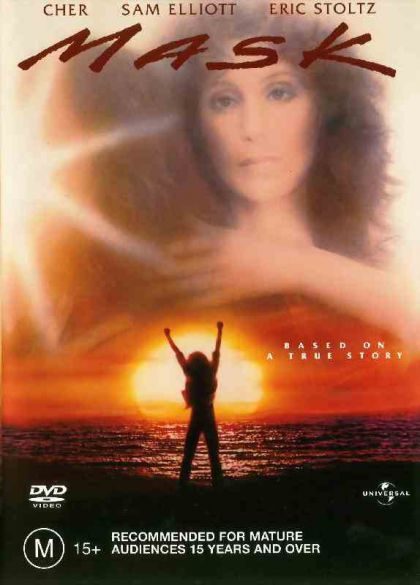
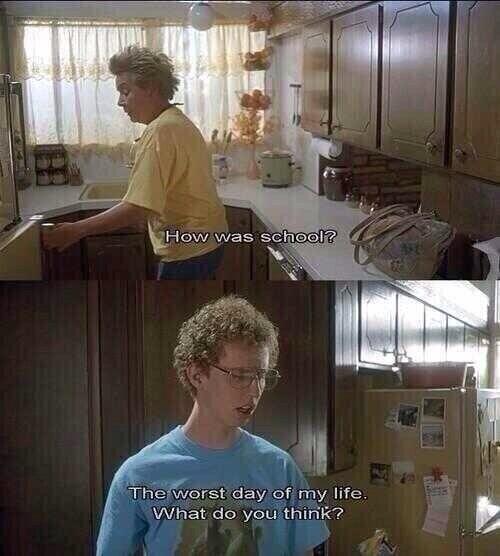
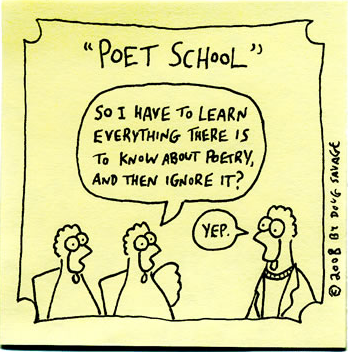
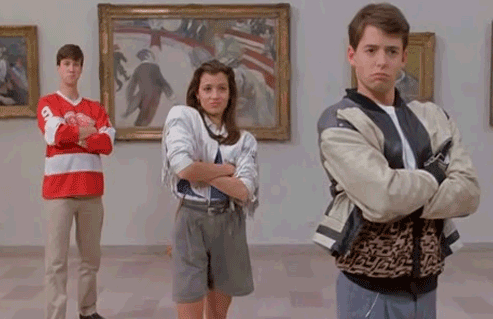
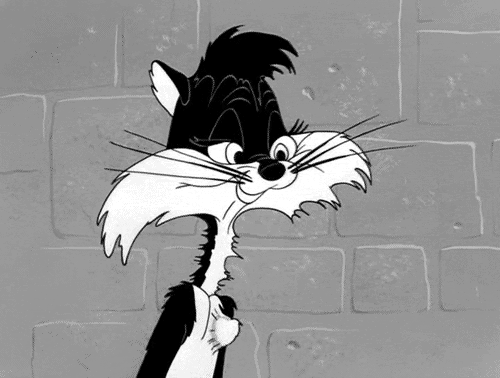

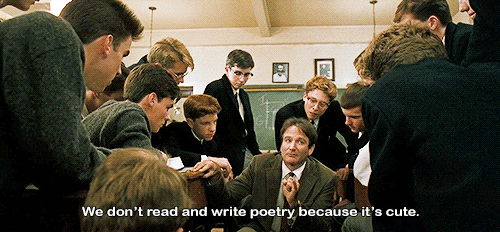


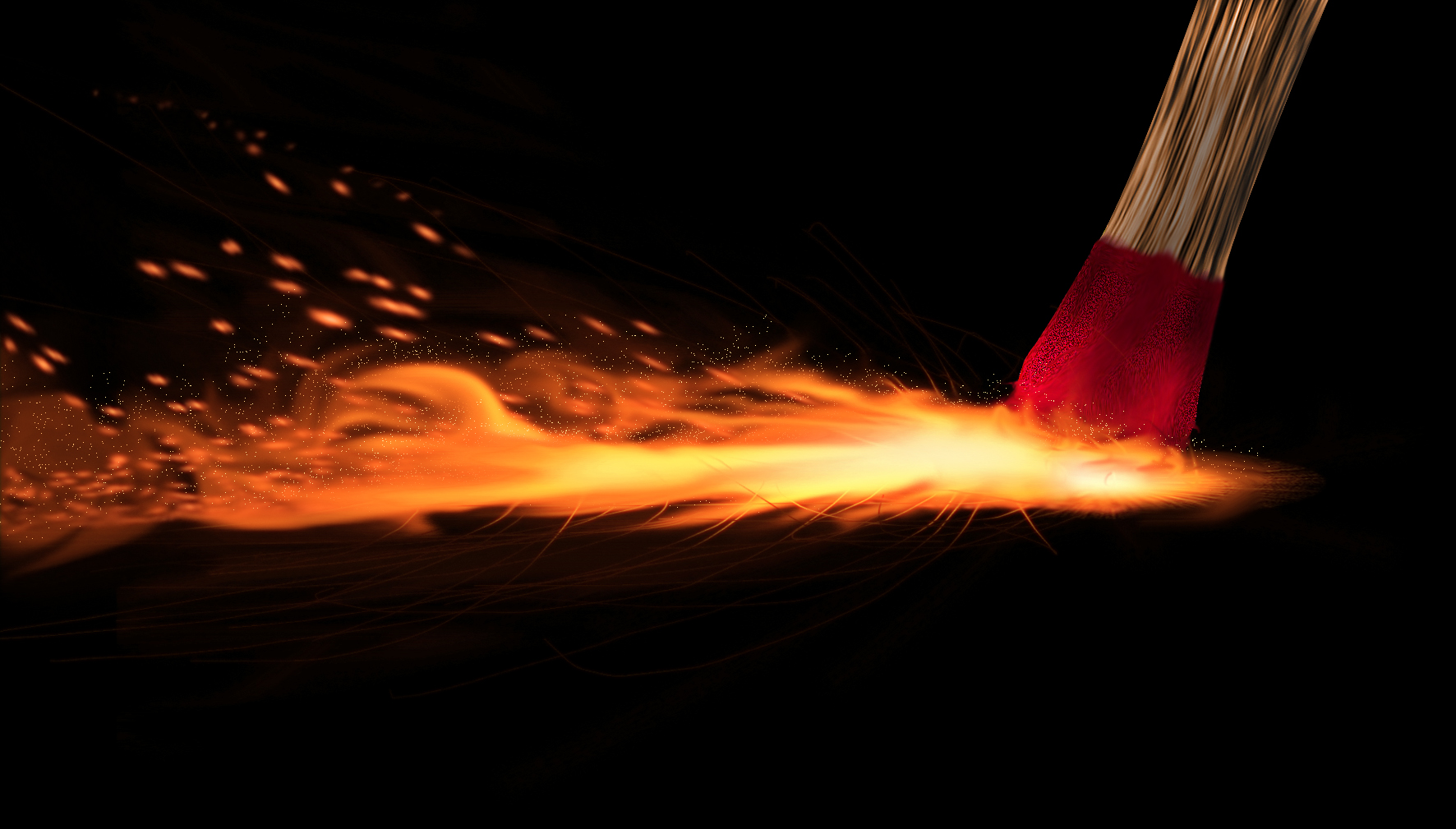

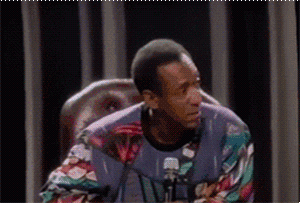
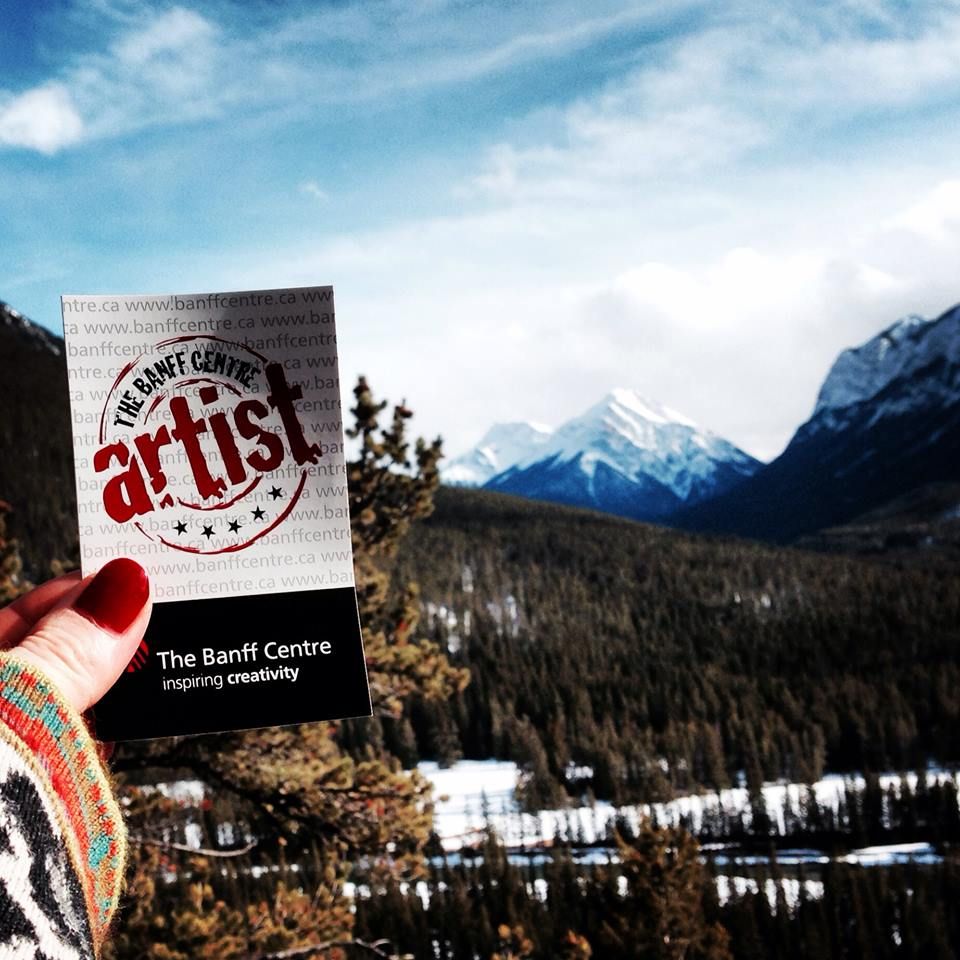
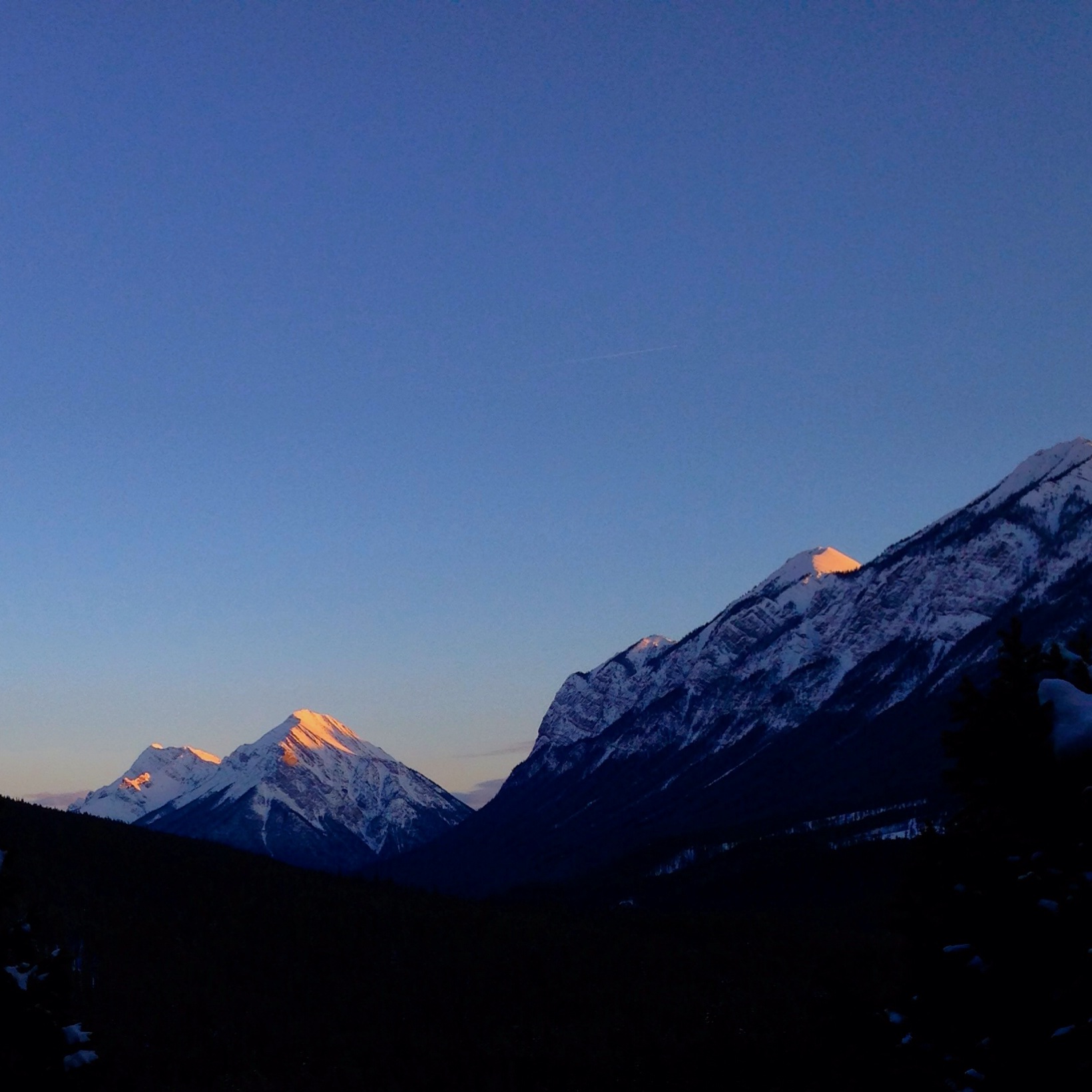 I was there in April spring, so everything was slowly waking up. Buds were shyly making their way out from branches, ice was melting, bears were shaking the sleep out of their eyes, the huge sapphire river that bordered the town was sparkling and the sky was a mixed cocktail of late snow and sunshine. There was elk roaming the grounds of the campus, their little tails shaking in the morning frost as they pulled the newly exposed tufts of grass from the wet ground. I once pushed the ‘walk’ button in town for a small family of deer moseying across the street by the pub.
I was there in April spring, so everything was slowly waking up. Buds were shyly making their way out from branches, ice was melting, bears were shaking the sleep out of their eyes, the huge sapphire river that bordered the town was sparkling and the sky was a mixed cocktail of late snow and sunshine. There was elk roaming the grounds of the campus, their little tails shaking in the morning frost as they pulled the newly exposed tufts of grass from the wet ground. I once pushed the ‘walk’ button in town for a small family of deer moseying across the street by the pub.

